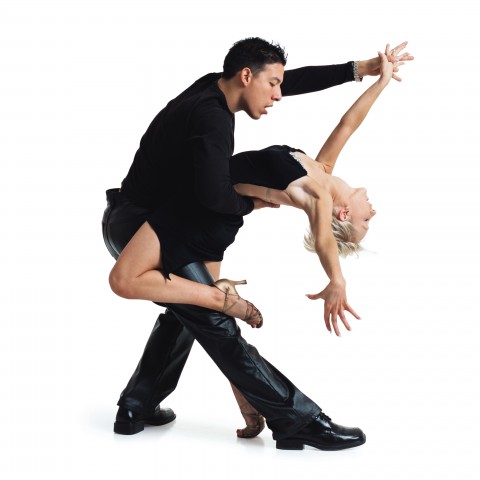
So, you’re dealing with an Afrikaans client and really want to impress them. Excellent! You can do this instantly by speaking good business language in Afrikaans!
As you know, speaking someone’s native language is a speedy and easy way to gain their favor. To Afrikaans business owners, this could demonstrate that you’re serious about…well, business! It will also show that you’ve invested personal effort into the business relationship.
Why not start straight away with our excellent video, “Learn Afrikaans Business Language in 15 Minutes,” featured at the beginning of this article? Or read our blog post about How to Find a Job in South Africa!

AfrikaansPod101 employs numerous means to support you while you learn business Afrikaans phrases and other important aspects of the language. Our lessons are culturally relevant, which should be important to you! Because knowing the details of Afrikaans culture can only benefit your business dealings with the natives.
We meet you at your current level, so you never have to worry about falling behind. That said, our Premium PLUS option supplies a guided learning system to help ensure you don’t make a fool of yourself when meeting your Afrikaans business client. That’s our business—to make you shine in Afrikaans!
In this article, we’ve compiled a list of the most relevant and commonly used Afrikaans business phrases and vocabulary so you can easily find what you’re looking for. Most of these phrases can be used across all communication media: in person, or via phone, email, letter, text, voicemail, and so forth.
Let’s imagine a business meeting from the beginning…
 Table of Contents
Table of Contents
- The Meeting
- The Business
- Tips for Afrikaans Business Etiquette
- Why AfrikaansPod101 Can Really Boost Your Business!
1. The Meeting

Following are some phrases you’re likely to use when setting up (and at the start of) a business meeting with an Afrikaans businessperson.
1.1 Making the Appointment
Afrikaans businesspeople are, as a rule, organized, and they value the same quality in others. Below are some business Afrikaans phrases you may find helpful when making an appointment. For the first two phrases, always remember to follow good phone etiquette for business.

Phone Calls
Let’s start with two basic phrases for phone conversations: how to make a call and how to answer one.
Making a call:
| Goeiedag, Sanjay. Dis Seo-yun wat praat. | “Good day, Sanjay. It’s Seo-yun speaking.” |
Answering a call:
| Goeiedag. Dis Seo-yun hier. | “Good day. It’s Seo-yun here.” |
Business Cards
Exchanging business cards in Afrikaans business settings is common during an initial meeting. Here’s how you can initiate a business card exchange:
| Kan ons besigheidskaartjies ruil, asseblief? | “Can we exchange business cards, please?” |
| Hier is my besigheidskaartjie. | “Here is my business card.” |
Setting Up Appointments and Keeping in Touch
| Bel my gerus. | “Feel free to call me.” |
| Kan ons dit telefonies bespreek? | “Can we discuss this over the phone?” |
| Bel gerus my sekretaresse vir ‘n afspraak. | “Feel free to call my secretary for an appointment.” |
| In Afrikaans, sekretaresse / “secretary” is used interchangeably with ontvangsdame / “receptionist.” | |
| Ek wil graag ‘n videokonferensie reël. | “I would like to organize a video conference.” |
| Hoe besig is jou skedule? | “How busy is your schedule?” |
| Kan ons volgende week ontmoet? | “Can we meet next week?” |
| Watter tyd sal jou die beste pas? | “What time will suit you best?” |
| Ek stel voor ons ontmoet by die kantoor. | “I suggest we meet at the office.” |
| Sal ek vir ons plek bespreek by die restaurant vir middagete? | “Shall I book us a table at the restaurant for lunch?” |
| Daardie tyd pas my goed. | “That time suits me well.” |
| Sal jy my jou adres gee, asseblief? | “Would you give me your address, please?” |
| Ek sien uit na ons afspraak. | “I’m looking forward to our meeting.” |
1.2 The Greeting
Greeting someone is an important part of any business meeting, especially when you meet for the first time—you’ll be sizing each other up and forming all sorts of ideas! Now you can make a great first impression with these Afrikaans business phrases.

| Aangename kennis. My naam is Sanjay Patel. | “Pleased to meet you. My name is Sanjay Patel.” |
| Laat ek jou voorstel aan my vennoot. | “Let me introduce you to my business partner.” |
| Vennoot / “business partner” can be replaced with kollega / “colleague,” and so on. This phrase can be used interchangeably with the next one. | |
| Laat my toe om julle voor te stel. | “Allow me to introduce you.” |
| Mevrou Van Heerden, ontmoet vir Morgan. Morgan, ontmoet vir Mevrou Van Heerden. | “Mrs. Van Heerden, meet Morgan. Morgan, meet Mrs. Van Heerden.” |
| In Afrikaans business environments, always introduce the younger person to the older person first. | |
| Goeiedag. Dis goed om jou te ontmoet. | “Good day. It’s good to meet you.” |
| Use this phrase when you’re being introduced to another person. | |
| Ons het al baie oor die foon gesels! Dis goed om jou persoonlik te ontmoet. | “We’ve spoken a lot over the phone already! It’s good to meet you in person.” |
| Dis goed om jou weer te sien! | “It’s good seeing you again!” |
| Jammer ek is laat! | “Sorry I am late!” |
Also be sure to check out even more tips on How To Say Hello in Afrikaans Like a Native Speaker!
1.3 The Small Talk
Afrikaners are affable and friendly people by nature, so small talk is good! Asking questions concerning their wellbeing will make them feel like you’re interested in them. They will likely pay attention to what you share about your personal life, so make sure you take careful note of their details, too.

Use the following questions to open a small talk conversation with an Afrikaans businessperson:
| Gaan dit goed? / Hoe gaan dit? | “Are you doing well?” / “How are you doing?” |
| Het jy ons maklik gevind? | “Did you find us easily?” |
| Het jy goed gereis? / Hoe was jou reis? | “Have you traveled well?” / “How was your journey?” |
| Is dit jou eerste besoek aan ___? | “Is this your first visit to ___?” |
| In the blank, simply add the name of the country you’re inquiring about, if not South Africa. | |
| Jy lyk goed! | “You’re looking well!” |
| Like any other person, Afrikaners love compliments. However, keep these for when you know them a bit better, and only if you really mean it. Nobody likes false flattery. | |
| Hoe gaan dit met jou familie? | “How is your family doing?” |
| This is another question better left for later in the business relationship. Afrikaners will always appreciate you asking this as long as you’re sincere—family is big for Afrikaners. | |
| Hoe was jou vakansie gewees? | “How was your holiday?” |
| Asking questions based on your previous conversations with your client, or based on what you know about them, will show that you’re interested in them as a person, not just a business asset. | |
| Sal ons begin? / Goed, laat ons begin. | “Shall we start?” / “Okay, let us start.” |
| Ek het ‘n ander vergadering om een-uur, so… | “I have another meeting at one o’clock, so…” |
| This open-ended statement can be used on its own, since its implications are clear. Or, it can be paired nicely with the next sentence. | |
| Sal jy omgee as ons begin? | “Would you mind if we started?” |
| Sekerlik, kom ons begin. | “Sure, let us start.” |
1.4 The Parting
Obviously, etiquette at the end of a business meeting is just as important as at the beginning. Here are some phrases you might find helpful:
| Baie dankie, dit was goed gewees om jou weer te sien. | “Thank you very much, it’s been good seeing you again.” |
| Dankie vir jou tyd, ek waardeer dit. | “Thank you for your time, I appreciate it.” |
| Dankie dat jy al die pad hiernatoe gekom het. | “Thank you for coming all the way here.” |
| Hierdie was produktief gewees, dankie. | “This was productive, thank you.” |
| Sal ons volgende week dieselfde tyd ontmoet? | “Shall we meet again the same time next week?” |
| My sekretaresse sal jou kontak vir ons volgende afspraak, as dit reg is? | “My secretary will contact you for our next appointment, if it’s okay?” |
| Ek waardeer jou moeite, baie dankie. | “I appreciate your effort, thank you very much.” |
| This is also a good phrase for managing people. Sincere compliments are motivating! | |

2. The Business
Despite their affable appearance, Afrikaners are private at heart. In fact, they tend to appreciate good, somewhat English manners that (at least initially) honor politeness and a certain social distance.
Some of them can appear a bit gruff and unpolished in their manner, but more often than not, this tough exterior hides a sensitive and very loyal soul. Because of this “soft core,” so to speak, they tend to be careful—if not somewhat cynical—about business partners at first.
But no worries, the secret into their hearts and pockets is pretty simple: be attentive to their needs, always be respectful in how you treat them, and consistently demonstrate honesty, reliability, and transparency in all business dealings. If, over time, they find that they can trust you, good business partners very often turn into friends. And you’ll find that you’ve made a friend for life!
Afrikaans businesspeople won’t expect from you what they don’t offer themselves. They tend to be extremely loyal to old and trusted business partners and clients, and they’re reliable, very hard workers themselves.

Afrikaners are also tenacious and real problem-solvers. In fact, we have an old saying in Afrikaans: ‘n Boer maak ‘n plan, which means “A farmer makes a plan.” It’s a population trait—Afrikaners don’t give up, because they always make a plan! So, if you need to get things done properly in business and the workplace, appoint an Afrikaner.
When doing business in South Africa, also keep in mind that Afrikaners prefer to keep things simple and straightforward in business. Don’t mess with them, though; you’ll soon find doors closing not-so-quietly in your face. Trust is strictly earned, and it’s an expensive thing in the Afrikaner culture! Of course, every batch has some bad apples, but you’ll find that everywhere in the world.
2.1 The Business Talk

Following are some Afrikaans business phrases you could find useful in any business setting.
Note that Ek / “I” can be replaced with other pronouns, such as jou (you, plural) / julle (you) / ons (we) / sy (she) / hy (he) / hulle (they).
| Het almal ‘n kopie van die agenda? | “Does everyone have a copy of the agenda?” |
| Wat dink jy hiervan? | “What do you think about this?” |
| Ek stem saam. | “I agree.” |
| Ek voel dieselfde. | “I feel the same.” |
| Jy is heeltemal reg. | “You are entirely correct.” |
| Jy kan dalk reg wees. | “You may / could / might be right.” |
| My ervaring is dieselfde. | “My experience is the same.” |
| Dis nie my ervaring nie. | “That’s not my experience.” |
| Jammer, maar ek stem nie saam nie. | “Sorry, but I don’t agree.” |
| Ek stem nie regtig saam nie. | “I don’t really agree.” |
| Ek’s nie seker of ek saamstem nie. | “I’m not sure that I agree.” |
| Dis ‘n uitstekende punt. | “That’s an excellent point.” |
| Hierdie is net my opinie. | “This is only my opinion.” |
| Hierdie is ‘n belangrike saak. | “This is an important matter.” |
| Sal jy ‘n kompromie oorweeg? | “Would you consider a compromise?” |
| Jammer om jou te onderbreek. | “Sorry to interrupt you.” |
| Mag ek gou onderbreek, asseblief? | “May I interrupt, please?” |
| Natuurlik, gaan voort. | “Of course, go ahead.” |
| Combine this phrase with the next one, if preferred. | |
| Wat wil jy sê? | “What do you want to say?” |
| Verskoon my, as ek net gou eers hierdie punt kan maak? | “Sorry, if I could just finish this point first?” |
| Dit is ‘n baie goeie voorstel. | “It is a very good suggestion.” |
| Dis ‘n goeie offer. | “It’s a good offer.” |
| Hierdie my beste offer. | “This is my best offer.” |
| Ek voel sterk hieroor. | “I feel strongly about this.” |
| Ek wil graag hieroor gaan dink, asseblief. | “I would like to think about this, please.” |
| Dit klink goed vir my! | “That sounds good to me!” |
| Enige verdere gedagtes of kommentaar? | “Any other thoughts or comments?” |
| Dalk moet ons ‘n breuk vat? | “Maybe we should take a break?” |
| Ons het hierdie reeds afgehandel. | “We’ve dealt with this already.” |
| Is daar nog iets wat ons moet bespreek? | “Is there anything else we need to discuss?” |
| Stem almal saam? | “Do we all agree?” |
2.2 The Management Talk

If you’re a manager, treating subordinates fairly, respectfully, and transparently will score you a lot of points. Following are some handy phrases you can use as a manager (though you could also use any of the phrases from the previous section).
| Ek het die verslag moreoggend nodig, asseblief. | “I need the report by tomorrow morning, please.” |
| Dankie, dit lyk goed. | “Thanks, this looks good.” |
| Wat stel jy voor? | “What do you suggest?” |
| Asseblief maak vir ons ‘n afspraak met Meneer De Beer. | “Please make us an appointment with Mr. De Beer.” |
| Kontak EdCon kantore vir ‘n vergadering volgende week, asseblief. | “Contact EdCon offices for a meeting next week, please.” |
| Of course, you can replace the business name with one of your choice. | |
| Asseblief kanselleer al my afsprake vir Vrydag. | “Please cancel all my appointments for Friday.” |
| Sal jy vir ons koffie en tee reël, asseblief? | “Would you organize tea and coffee for us, please?” |
| Hoe laat begin die vergadering? | “What time does the meeting start?” |
| Bel vir Martie en vra of ons via Zoom kan ontmoet, asseblief. | “Call Martie and ask if we could meet via Zoom, please.” |
| Bespreek vir my ‘n vlug Dubai toe, asseblief. | “Book me a flight to Dubai, please.” |
| Is die “boardroom” voorberei? | “Is the boardroom prepared?” |
| The official Afrikaans word for “boardroom” is raadskamer, but this is almost completely out of use. As a rule, we just use the English word. | |
| Druk asseblief my notas uit. | “Please print my notes.” |
| Dankie vir jou harde werk. | “Thank you for your hard work.” |

Essential Afrikaans Business Vocabulary
- witbord / “whiteboard”
- witbord pen / “whiteboard marker”
- harde kopie / “hard copy”
- voorlegging OR aanbedding / “presentation” (This is a noun, and what you would give to your boss or prospective client in the form of a document or PowerPoint presentation.)
- aanbied / “present”
- grafiek / “chart”
- dagboek / “diary”
- sakeonderneming / “business enterprise”
- handel / “commerce”
- verslag gee / “to report”
- rapporteer aan / “report to”
- adviseur / “adviser”
- aanbeveel / “advise”
- kontrak / “contract”
- ooreenkoms / “agreement”
3. Tips for Afrikaans Business Etiquette

Many business rules in South Africa are similar to those in most Western countries. However, there are still some culturally specific (and often unspoken!) ones that should be observed for optimal effect. Adhering to them could make the difference between a failed or successful meeting, so pay attention!
3.1 Dress and Hygiene
Depending on the nature of your business, we recommend dressing neatly and only semi-casually.
Men, if you’re in white collar business, like finance, stick to the European dress-style and wear a modern suit. (If you’re going to meet with a person of great seniority, wear a tie. Otherwise, feel free to lose the noose!)
Ladies, avoid deeply plunging necklines, micro miniskirts, or body-hugging gear. You really don’t want to look like you’re advertising something other than your business or products. No decent Afrikaner businessman respects that! However, there’s no need to be prudish either. Rather, think stylish, business-like, and classy, and apply makeup and perfume sparingly.
That said, if you normally wear traditional gear, such as a thawb and keffiyeh, there’s no need to change into Western-style clothing. We appreciate authenticity and openness over so-called political correctness, especially in business.
Good personal hygiene is important to Afrikaners, though. Smelling like you only bathe once a year, having oily, unkempt hair, and sporting filthy nails will not score you any points. And do brush your teeth before the meeting! Halitosis is never a deal-maker. Overall, it makes a good impression when your appearance shows that you take care of yourself, even if you’re dressed inexpensively. You don’t need to show off; you just need to be presentable by regular Western standards. To Afrikaners, a good appearance is a sign of respect to the person you’re meeting with.
3.2 Being Punctual
Be on time for the meeting, or even better, be five minutes early! Showing respect for another’s time is big for Afrikaans businesspeople. They will be punctual and expect the same of you. In case arriving on time is impossible, a text or call to inform them of the delay will be far more acceptable than making them wait for longer than a few minutes.
However, if they are not on time, and you haven’t received any notification of the delay, you’re very likely either dealing with a “bad apple,” or you’ve lost their respect or trust for some reason. It doesn’t need explanation that neither are good signs! Of course, sometimes faulty technology can be to blame, but the point is that notification of delay is basic Afrikaans business protocol for meetings.
3.3 General In-Meeting Etiquette
If you’re seated when they arrive, stand up (or at least get up halfway from your chair) for a formal handshake greeting. This is a sign of respect, especially upon meeting for the first time.
If you’re meeting them for the first time, and they remain seated when you arrive, it could be a sign of arrogance or reservations about your business. This is especially true of hardened Afrikaans businesspeople. It’s not necessarily a bad sign, but you may have to read and assess the situation carefully before signing on the dotted line. Yet, as a rule, only bad-*ss gang leaders stay seated when a prospective client or business partner arrives for a meeting!
If you’re hosting the meeting, offer your right hand first for a handshake greeting. Keep your grip firm but not crushing—it’s not a Push Hands competition! If you are the guest, though, it’s better to wait for your Afrikaans client to offer their hand first. Remember to look them straight in the eye with a friendly smile for the duration of the handshake.
3.4 What to Say and How to Say It
If the person you’re meeting for the first time has a military or professional title, like General, Doctor, or Professor, don’t be shy to use this (together with their surname) until they invite you to do otherwise.
Over-familiarity is never cool, especially in the beginning of your business partnership.
It’s best to address people much older or senior-in-rank as Meneer (“Mister”), Mevrou (“Mrs.”), or Mejuffrou (“Miss”) when you first meet them, especially at a formal event. Even if they’re being introduced to you by their first names, wait for them to give you permission to address them informally. This is just good manners and a sign that you respect their seniority.
And last but not least, gratitude is a wonderful attitude! Get the low-down on How to Say Thank You in Afrikaans in different contexts.
4. Why AfrikaansPod101 Can Really Boost Your Business!
We hope you learned a lot from our article about how to conduct business in Afrikaans, and that you found our collection of Afrikaans business phrases helpful. Do you have any questions? Let us have them in the comments below!
At AfrikaansPod101, we can help you understand Afrikaans easily with our hundreds of recorded videos, themed vocabulary lists, and much more. Speak like a native in no time!
Also be sure to arm yourself with the Afrikaans Key Phrase List and the Afrikaans Core 100 Word List to make a superb impression at your business meetings. Approach Afrikaans businesses with confidence and ease—you got this!

Eleven Common Ways to Say Goodbye in Afrikaans

Time to say goodbye? In Afrikaans, this can be just as difficult to do as in any other language. Because hey, who likes goodbyes?! Wishing friends and loved ones farewell is never pleasant nor easy, especially if the parting is permanent or long-term.
But even this depends on how you look at it. As Winnie the Pooh wisely says:
“How lucky I am to have something that makes saying goodbye so hard.”
Not all goodbyes are terribly hard or sad, though. In this article, AfrikaansPod101 will show you several ways to say goodbye in Afrikaans and how to use the right one for every occasion.
As a complement, you can also learn How to Say Hello in Afrikaans in our dedicated blog post before continuing with this one. It’s super-easy!
Like saying hello, saying goodbye in Afrikaans isn’t really that difficult to master. Most Afrikaans goodbyes are Anglicized, meaning they’re taken from the English language. Let’s dig in! Start with a bonus, and download the Must-Know Beginner Vocabulary PDF for FREE!(Logged-In Member Only)
 Table of Contents
Table of Contents
- How to Say Goodbye in Afrikaans
- Body Language and Gestures When You Say Goodbye in Afrikaans
- How AfrikaansPod101 Can Help You Master Saying Goodbye in Afrikaans!
1. How to Say Goodbye in Afrikaans

1. Totsiens / “Goodbye”
Totsiens is a contraction of Tot weersiens, which literally means “Till I see you again.” Of course, the implication is that you wish the person well until you see each other again.
Like its English equivalent, Totsiens is used on its own, and is a common way of indicating that you’re taking leave of someone’s presence. You can use it in both formal and informal situations, and it’s often used when you won’t be seeing that person for a long time.
When addressing a boss or someone important, some Afrikaners like to add the person’s name, like this:
- Totsiens, Meneer De Beer. (“Goodbye, Mister De Beer.”)
This form of address is slightly more respectful than only using Totsiens, but it’s not by any means required for proper social etiquette. You won’t have committed an unforgivable social gaffe by omitting the person’s name.

2. Baai! / “Cheers!”
Baai is used among people who know each other well—like family, friends, and close colleagues—because it’s super-informal and should be used mostly in casual situations. The word is a rather cheerful way of saying goodbye in Afrikaans, so it’s best not to use it for solemn or sad partings.
It’s common to say Baai! when you’re going to see or have contact with that person again soon, though you can also use it in other situations. For instance, you could say this when parting with a friendly shop assistant whom you just had a casual, friendly chat with.
Afrikaners like chatting with everyone, especially in the rural areas of the country! We tend to be a bit more reticent and private in cities like Johannesburg and Pretoria, but even in those places, foreigners making friendly small talk with Afrikaners won’t be rebuffed. Cape Town, in particular, is known to be a very friendly city, so chat away when you visit there! Sincerity and politeness in your dealings with people are key, though.
Baai is a contraction of Koebaai, which is Afrikaans slang for “Goodbye.” (Check out some of the other cool Afrikaans slang words we use in South Africa!)
A fairly common, yet new, convention is to say Baai-baai-baai in a hasty, almost absent-minded manner. Heaven knows where this originated from. Alternatively, you could say Baai-baai! or Ba-baai, which are both translations of the English “Bye-bye!” Children often greet this way.

A variation of this goodbye is the English Ta-Ta! It could be derived from the English slang for “thanks,“ which is “Ta!” So, then it would be like saying “Thanks-thanks!” Anyway, this is a very casual, informal way to say goodbye in Afrikaans, most often used with babies and children. Smile widely and wave enthusiastically while saying this!
3. Sien jou later! / “See you later!”
Like its English equivalent, this Afrikaans goodbye phrase is fairly casual and normally used when the parting is temporary. You could use this when you’ve made a fixed appointment or have a date with someone, or when you know you’re going to see them later in class or at work, for instance.
This phrase is considered an Anglicism, and is almost always used among people who are of equal status. However, it wouldn’t be considered rude to say this to your supervisor or boss.
The nuance is very subtle, but young people—or other Afrikaners who know each other extremely well—won’t, as a rule, say goodbye in Afrikaans this way. It’s just a smidgen more formal and polite than other phrases, and more common among older folks living in rural areas. That said, there’s nothing wrong with saying bye in Afrikaans this way if you opt to do so!

4. Sien jou weer. / “See you again.”
This one’s a variation of the previous greeting. It’s typically not used literally, though, meaning you don’t need to have a fixed date or appointment with someone to use this phrase. It’s more of a polite and friendly way for equals to part ways when they don’t know each other very well.
For instance, you could confidently use this goodbye phrase with acquaintances in the workplace or when parting ways with someone you met at a party. It’s more of a polite conversation filler than a sincere wish.

The phrase is often used with the adverbial graag, like this: Sien jou graag weer. There’s no literal translation for graag in English. It adds a sense of willingness and eagerness to the phrase (such as “really” does, in English), and it could indicate that you mean what you say. Use this one with some care, though, as you don’t want to appear overly eager or needy.
5. Geniet die dag. / “Have a good day.”
This is another popular Anglicism, and it’s slightly more formal than the previous one. Often, the local dominee (“pastor”), apteker (“pharmacist”), or skoolhoof (“school headmaster”) will use it as a friendly, benevolent phrase to see people off with.

While a wave and a smile will do, this one can be accompanied by a handshake. It’s also common to combine it with Totsiens, as in: Totsiens, Magda. Geniet die dag! (“Goodbye, Magda. Enjoy your day!”)
A common variation is: Geniet jou dag. (Literally: “Enjoy your day.”)
6. Kyk mooi na jouself. / “Take care.”
Kyk mooi na jouself is used a little differently from the English “Take care,” even though it means the same thing. It’s seldom used as a stand-alone goodbye in Afrikaans, but rather gets used like this: Totsiens en kyk mooi na jouself, Magda. (“Goodbye and take care, Magda.”)
Changing the word order is also acceptable, like this: Kyk mooi na jouself, Magda. Totsiens. (“Take care. Goodbye, Magda.”)
This is often used by someone who wants to express concern for the other person. A parent would say goodbye like this to their child who’s leaving for college in another city, for example. Or a caring colleague would say this to someone on sick leave. You could also round off a conversation with this phrase when visiting a friend, colleague, or loved one in the hospital.

7. Mooi loop! / Literally: “Walk well!”
This phrase is a more casual variation of the former Kyk mooi na jouself (“Take care”), and it’s a very typical Afrikaans saying. These days, it’s mostly used by older Afrikaners.
It can be used in any situation, and implies that you wish a pleasant journey for the other person. However, it’s not reserved only for people who are actually going on a journey!
Mooi loop! can be used as a stand-alone goodbye. However, it’s not really appropriate if the person you’re greeting is of much higher rank than you, or if your relationship with them is formal.

8. Goed gewees om jou te sien. / “Good seeing you.”
This colloquial goodbye phrase is pretty self-explanatory—use it when you want to indicate that an encounter with someone has been a pleasant experience. It can be used when meeting up with, or bumping into, an acquaintance or friend you haven’t seen for a long while. In such a case, you would probably add the adverb: weer (“again”), as in: Goed gewees om jou weer te sien. (“Good seeing you again.”) However, the additional adverb is completely optional.

This phrase can also be written in a thank-you note to the hosts after an event such as a wedding or school reunion. It can denote slight formality, but older, very polite or official Afrikaners often use it as a standard parting phrase.
9. Ek gaan nou loop. OR Ek loop nou. / “I’m leaving now.” OR “I’m out.”
There are two distinct ways of using this goodbye in Afrikaans.
First, the positive scenario:
Picture yourself at work after a long Friday at the office, or after an exhausting shift at the hospital. You’ve just gotten done with work and are free to go. That’s it! You grab your stuff and cheerfully announce your departure (to nobody in particular) with this phrase. Whoever hears it will perfectly get your mood and intention, and may even follow suit. This is a very casual phrase and most often followed by a friendly, if not absent-minded, Baai! or Totsiens!

Then there’s the less positive scenario:
You’re engaged in an argument with a friend or Special Person (SP), but it’s clear that the conversation is going nowhere. Perhaps one of you gives up and leaves with a curt, unfriendly: Ek loop nou. (“I’m out.”) Just like the English expression, the way you say it makes all the difference. We recommend that you don’t use this too often, though, as it can be somewhat passive-aggressive if you’re the stubborn, unrelenting one!
10. Ek moet hardloop. / “I gotta run.”
Like its English counterpart, this phrase denotes a sense of urgency, and it could imply that you’re late for another appointment.
It’s actually more of a statement than a real goodbye in Afrikaans! Therefore, it’s most often used with the prefix Dis laat (“It’s late”), as in: Dis laat, ek moet hardloop. (“It’s late, I must run.”)
However, Afrikaners sometimes use it as an out when we feel a bit stuck in a conversation or situation! You know, to escape from that person who seems unable to read your body language. Or from your slightly inebriated colleagues who don’t want to let you leave after a work party.
In these cases, a more serious phrase would be appropriate, such as: Ek moet gaan. (“I must go.”) If said with a tone of urgency and a glance at your phone or watch, it could be all you need to get away! Legitimate and useful, but don’t use it too often with people you care about. They might feel that you don’t have time for them.
This phrase is always used with Baai! or the slightly more formal Totsiens.

11. Vaarwel. / “Farewell.”
Vaarwel is no longer used in spoken Afrikaans, unless you’re on stage and wishing your beloved from another era a melodramatic goodbye. It means you’re never going to see that person again, but these days (fortunately), its use is pretty outdated.
The word originates from a time when it was more common to say goodbye to people forever. Imagine a girl from the 1600s sobbing inconsolably on a harbor, while waving to her sailor lover on a ship that’s heading out toward new, uncharted worlds. It literally means the same as the English version: “Sail well.” The chances of their reunification were very slim, though, so saying Vaarwel usually meant goodbye forever.

2. Body Language and Gestures When You Say Goodbye in Afrikaans
When you say goodbye, body language is just as important as the words you use.
A) Eye Contact, Smiling, and Keeping a Distance
Afrikaners like friendly people! But more than that, it’s important to remember that natural, spontaneous eye contact, in particular, is big among Afrikaners. It shows that you’ve got nothing to hide and are willing to allow other people to “read” you.
Ferociously staring in a deadly eyelock is unnecessary, though. No need to impersonate Ghengis Khan or Derren Brown to show your sincerity! Afrikaners would find this inappropriate and scary.
In the same vein, saying goodbye with eye contact that says “Helloooo Baby…” is not appropriate either. Maintaining eye contact for too long, or doing so in an intimate manner, will make Afrikaners feel uncomfortable. Unless you intend to seduce, of course! In this case, different etiquette will apply—seduction is an art best approached with circumspection.
Afrikaners are a warm and friendly people, but we don’t like over-explicit sensual gestures in public, especially in more conservative communities and rural areas. We make reasonable allowance for couples in love, of course, but our manners in this regard are still rather British.

Afrikaners tend to be private people, even when you know them well. So keeping at least a meter (or three feet)’s distance when saying goodbye is a safe move. If they indicate that they want you closer for a bear hug or an air kiss, then fine, but it’s better for you not to initiate this yourself.
How you say goodbye in Afrikaans, concerning your gestures and actions, will definitely depend on how well you know the people.
B) Close Friends and Family
If you know the person very well, hugs are not only permitted when you say goodbye—they’re often required! This is especially true if the parting is going to be a long, sad one. Unless they’re family or your SP, don’t hug too tightly though.
Kissing is also allowed, even on the lips, if you’re close. But then, only a peck. A kiss on the cheek is also appropriate for friends.
As a rule, Afrikaner men avoid public displays of affection, especially with other men. Most often, they will shake hands, just like they do when they first greet. That said, even men are known to briefly hug a close friend with a casual arm slung over the shoulders. Cameradie is important, especially if the goodbye is difficult.

Fist-bump goodbyes are increasingly popular among young people and school kids, as is throwing the V-sign (or victory sign), with the fore and middle fingers raised in a fist. It’s also called the Peace Sign. However, this gesture is particular to a specific demographic. So, don’t use it with the bank manager, a police officer, or your boss, for instance. Unless they’re also a rapper, of course.

While we don’t like melodrama, we’ll understand if you’re too sad for a smile. A few tears are acceptable, even welcomed, but save the total breakdown for when you’re alone in private. Your Afrikaner friends will understand if you cry, and will try to console you—but they might feel a bit embarrassed, too. As mentioned, we don’t love public displays of strong emotion, as it makes us feel vulnerable.
Unless you’re very close! Then go ahead; a good bawling session will likely be infectious and solidify your bond even more. Make sure to keep the tissues close for everyone, though; your efficiency will be appreciated.

C) Informal and Formal Situations: Etiquette When Saying Goodbye to Women
Men, be respectful when you hug an Afrikaner woman who’s not your significant other. Be sensitive to the signals she sends you, and if she doesn’t indicate that it’s okay, or if you’re not sure, don’t reach for a hug at all!
An air kiss by the ear or cheek while lightly touching her shoulder would probably be the safest option (if she’s a relatively close friend). You don’t want to look for trouble with her Afrikaner husband; they’re notoriously protective of their women! The best thing may be to just offer your hand for a handshake, regardless of the situation. Allow her to take the lead.
D) Informal and Formal Situations: Etiquette for Colleagues and Strangers
In most cases, a smile, eye contact, and a handshake would be appropriate and acceptable among Afrikaner men and women. Offer your right hand and keep a respectful distance.
If the person is senior to you, wait for them to offer their hand first, though. This is a sign of respect. Jutting your hand out first toward the CEO of your company or a dignitary, such as a cabinet minister, would be considered a bit too forward.
3. How AfrikaansPod101 Can Help You Master Saying Goodbye in Afrikaans!
We hope you enjoyed learning about how to say goodbye in Afrikaans with us. Are you ready to start practicing the vocabulary, or do you still have questions? Let us know in the comments!
AfrikaansPod101 takes the lead with many excellent Afrikaans learning tools to help you master the language easily and almost effortlessly. We have so many learning options for you!
Our well-researched tools include:
1. An extensive series of vocabulary lists, updated regularly.
2. A new Afrikaans word to learn every day. Master these words easily with our recordings and flashcards!
3. Access to numerous recordings, such as this Afrikaans Vocab Builder.
4. A free Afrikaans online dictionary.
5. An excellent 100 Core Afrikaans Words list!
Learn much faster with the help of a personal tutor, who will first let you take an assessment to personalize your training.
These teachers are very helpful when you bump into challenges during your studies. Your very own friendly, Afrikaans-speaking teacher will be only a text away on a special app, anywhere, anytime. Using a guided learning system, which was developed by experts in language and online education, they’ll be giving you personal feedback and constant support so you can learn and improve quickly. You’ll also be tasked with weekly assignments in reading, writing, and speaking, to really hone your Afrikaans language skills.
Don’t hesitate—enroll with AfrikaansPod101 now!

How Hard is it to Learn Afrikaans?

This is not an easy question to answer! How hard it is to learn Afrikaans depends on a few things, really.
Afrikaans is the world’s youngest official language. Known as “Cape Dutch” or “Colonial Dutch” back in the day, Afrikaans was only considered a “real language” in the previous century. Over the years, it has been influenced by many other languages, including Arabic, French, and Russian. So it can appear pretty daunting to learn!
However, AfrikaansPod101 is an easy way to learn Afrikaans because we simplify the learning steps for you. We introduce many simple but effective ways to learn Afrikaans while having fun at the same time! And our blog posts are informative and culturally relevant, such as this one on Afrikaans Etiquette in South Africa, and this one on Learning Dates in Afrikaans.
 Table of Contents
Table of Contents
- Is Afrikaans Hard to Learn?
- Reasons Why Afrikaans is Easy to Learn
- Reasons Why Afrikaans Can Be Difficult to Learn
- How to Learn Afrikaans with AfrikaansPod101 – Fast and Easy Ways at Your Fingertips!
1. Is Afrikaans Hard to Learn?
Hard for whom?
If your own language has Germanic roots, then no, it’s not that difficult at all. In fact, you may find it much easier to master than other languages, in most respects.
Afrikaans is the fourth most-spoken Germanic language in the world, preceded by English, German, and Dutch. It’s the majority language of Namibia and South Africa, estimated to be spoken by over 20 million people. This number includes second-language speakers.
Given Afrikaans’ roots, if you can speak Dutch, you’ll find that learning Afrikaans is quite a lot easier, too. The languages are very closely related, even though they differ in grammatical structure. Dutch is the older and, in some respects, more intricate of the two.
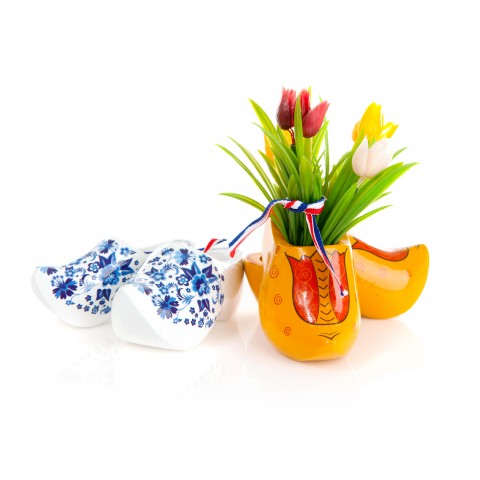
Let’s look at what makes Afrikaans hard to learn for so many people, and a few ways it might be easier than English.
2. Reasons Why Afrikaans is Easy to Learn
Compared to English and most other languages, Afrikaans is simpler in many ways.
Here are some examples of things that make Afrikaans so easy to learn.
2.1 Inflections /Infleksies
Generally speaking, Afrikaans has fewer inflections than most European languages. According to Writing Explained, inflections are the changes made to verbs, nouns, adjectives, etc., depending on what is being expressed (number, gender, case, voice, and so on).

These changes can be anything from a simple letter to a more complex affix. An affix is a morpheme (one or more letters) that you can add to a word to change that word’s meaning to some extent. Such as the genitive ‘s to indicate possession (“America’s finest”), the plural “s” to indicate numbers (“husbands”), the comparative “-er” to indicate degree (“faster”), and so forth.
The best-known difference compared to English is probably the fact that Afrikaans verbs don’t conjugate for subject. This is really super-uncomplicated and very easy to learn and understand!
Conjugations are a subset of inflections that occur only in verbs. Afrikaans is very simple that way because, irrespective of the noun, the verb remains the same. It only conjugates for tense, mood, aspect, and voice.
Following are two examples of Afrikaans verb conjugation. You’ll see that the verb remains the same, irrespective of noun number and gender.
2.1.1 Verb Conjugations – Simple Present Tense / Werkwoord Verbuigings – Teenwoordige Tyd
| AFRIKAANS | ENGLISH |
| Ek is | I am |
| Jy is | You are (singular) |
| Hy/sy is | He/she is |
| Julle is | You are (plural) |
| Hulle is | They are |
| Ons is | We are |
| Dit is | It is |
2.1.2 Verb Conjugations – Simple Past Tense / Werkwoord Verbuigings – Verlede Tyd
| AFRIKAANS | ENGLISH |
| Ek was | I was |
| Jy was | You were (singular) |
| Hy/sy was | He/she was |
| Julle was | You were (plural) |
| Hulle was | They were |
| Ons was | We were |
| Dit was | It was |
Afrikaans only has a simple past tense, a phenomenon not found in other Germanic languages. For instance, in English, we have “I was ill” and “I had been ill.” In Afrikaans, the past remains simple: Ek was siek.
2.2 Gender Classification / Geslag Klassifikasie
Just like English, Afrikaans nouns are not gendered. Therefore, there’s no noun classification or corresponding verb conjugation like in, for instance, French and Italian.
2.3 Definite & Indefinite Articles / Bepaalde & Onbepaalde Lidwoorde
Afrikaans is as easy as English regarding the use of different articles. (In fact, it’s a bit easier, because there’s only one indefinite article in Afrikaans.)
| AFRIKAANS | ENGLISH |
| Bepaalde lidwoorde: die/hierdie/daardie | Definite articles: the/this/that |
| Onbepaalde lidwoord: ‘n | Indefinite articles: an/a |
| Note: The indefinite article ‘n ALWAYS gets written like this, even at the start of a sentence. In this case, the second word in the sentence (the noun it refers to) starts with a capital letter. Like this: ‘n Hond sit voor die deur. | A dog sits in front of the door. |

2.4 Questions Starting with a Verb / Vrae Wat Met ‘n Werkwoord Begin
Question words are pretty common in most languages, and Afrikaans is no different. However, sometimes questions that are about an action start with a verb instead of a traditional question word. English is more complex in this way compared to Afrikaans, as two or more verbs are needed: “Do/does” + Verb.
In most instances, this is not the case in Afrikaans. Depending on what it is we want to say, only one verb is necessary in simple questions.
Afrikaans: Waai die wind?
English: “Does the wind blow?”
or
Afrikaans: Werk die plan goed?
English: “Does the plan work well?”
or
Afrikaans: Is die man siek?
English: “Is the man ill?”
or
Afrikaans: Was die maaltyd smaaklik?
English: “Was the meal tasty?”

2.5 Spelling / Spelling
Over the years, Afrikaans spelling has been adapted from Dutch and simplified. For instance: the Dutch mij (“me”) became my in Afrikaans. The pronunciation of zon (“sun”) became son in Afrikaans. English-speakers find many Afrikaans words intuitive and easy to learn.
Afrikaans does pose some challenges, however. So, why is Afrikaans so hard to learn despite the simpler aspects we covered above?
3. Reasons Why Afrikaans Can Be Difficult to Learn
First, let’s clarify this—no language is objectively easy to learn. Asking: “How hard is it to learn Afrikaans?” is the same as asking: “How hard is it to learn the piano?” Learning the piano may be comparatively easier than learning the oboe, for instance, but it still requires a lot of work and effort. If you want to become good at it, it’s going to take effort and commitment.
At AfrikaansPod101, we know this, which is why we keep our lessons short and accessible—not to mention fun and tailored to your personal needs.
Let’s look at the ways in which Afrikaans is slightly more complex than other Germanic languages.

3.1 Afrikaans Negation / Afrikaanse Ontkennende Vorm
This is probably one of the better-known syntactic properties that poses challenges when learning Afrikaans: the so-called “double negative.”
Afrikaners need to make very sure that you get it when they say “No!” A simple word won’t do, nope; we have to repeat ourselves. The basic principle is this: Add a second ‘negation word’ in the final position. This means that a second nie (“no”) is added after the verb, noun, or clause.
Here are a few examples:
| Afrikaans Ontkennende Vorm – Double Negative | English |
| Ek drink nie alkohol NIE. | “I don’t drink alcohol.” |
| Sy kan nie Afrikaans praat NIE. | “She can’t speak Afrikaans.” |
| Hulle is nie so arm NIE. | “They are not that poor.” |
| Wie het nie opgedaag NIE? | “Who didn’t arrive?” |
| Moenie dit doen NIE! | “Don’t do it!” |
This rule doesn’t apply in simple statement sentences.
For instance:
| Afrikaans Ontkennende Vorm – Simple Negative | English |
| Ek drink nie. | “I don’t drink.” |
| Sy praat nooit. | “She never talks.” |
| Die kat hardloop nie. | “The cat doesn’t run.” |
Another way in which Afrikaans is slightly more intricate is the way nouns inflect for numbers.
3.2 Numbers / Syfers
In Afrikaans sentences, the noun inflects for numbers with a few suffixes, such as: “-s” / “-e” / “-te.”
| AFRIKAANS | ENGLISH |
| Singular: meisie | Singular: “girl” |
| Plural: meisies | Plural: “girls” |
| Singular: hond | Singular: dog |
| Plural: honde | Plural: dogs |
| Singular: koffiebeker | Singular: “coffee mug” |
| Plural: koffiebekers | Plural: “coffee mugs” |
| Singular: land | Singular: “country” |
| Plural: lande | Plural: “countries” |
3.3 Afrikaans Trilled “R” / Trillende Afrikaanse “R”
Learning to speak Afrikaans correctly comes a bit difficult for English-speakers. It’s easy to spot a non-native speaker by this one trait only: they battle with their Rs!
Unlike the guttural R of the Dutch and the French, and the rolling R of the English, the Russian and Afrikaans trilling R is formed in the front of the mouth. This is done by pressing the tongue firmly against the little ridge behind the upper front teeth, like when you form a “t.” Then, air is pressed over the tip of the tongue so that the tongue trills. Not easy to master, but neither is it impossible!
What makes things even more complex is that phonology, or the way the Rs are pronounced, differs by region. Learn a bit more about that in this pronunciation article.
But don’t despair. Like learning how to drive, cook properly, or fix a car, learning to speak Afrikaans just takes commitment and a bit of effort. And we have your back all the way!

4. How to Learn Afrikaans with AfrikaansPod101 – Fast and Easy Ways at Your Fingertips!
We hope you enjoyed our article about the difficulties of learning the Afrikaans language! Do you feel more confident about learning now, or are there still some things you feel unsure about? Feel free to ask us in the comments!
Also, let us make it easier for you with our innovative approach to language-learning. You can expect the following when you enroll:
- Plenty of recorded words, phrases, and conversations in Afrikaans to train your ear and help you with pronunciation.
- Situational and culturally appropriate phrases to arm yourself with in any situation.
- Many free online tools upon subscription to make your life easier while learning to speak Afrikaans. For instance, this free Afrikaans dictionary.
- Thousands of lessons tailored to meet you at your level of language proficiency, while giving you enough content to help yourself straight away, such as this free list of Afrikaans Key Phrases.
- Several learning options that suit your pocket and your language needs. For instance, fast track your fluency with access to your own online teacher.
Make your Afrikaans learning experience much easier today by enrolling with us at AfrikaansPod101!

The Most Common Afrikaans Language Learning Mistakes

We tend to experience mistakes as either Tyrants or Teachers. Sometimes, we make regrettable mistakes that we berate ourselves over; other mistakes slide off us like rainwater.
In Afrikaans, we have a popular idiom: Probeer maak die beste geweer. (Lit. “Trying makes the best gun.”) This roughly means that you won’t know if you can hit a target unless you shoot!

The secret is simply to not give up, no matter how often you repeat a mistake in Afrikaans! We understand this very well at AfrikaansPod101.com.
Dig into this guide to avoid making any of these common Afrikaans language mistakes!
 Table of Contents
Table of Contents
- Vocabulary and Grammatical Mistakes
- Pronunciation Mistakes
- Spelling Mistakes – Compounds and Emphasis
- Other Common Afrikaans Spelling Mistakes
- Why Afrikaans Mistakes are Nothing to Worry About
- The Many Ways AfrikaansPod101 Can Help You Correct Afrikaans Mistakes
1. Vocabulary and Grammatical Mistakes
There are a number of mistakes in Afrikaans concerning vocabulary and grammar that you should keep an eye out for.
1.1 Don’t be English!
One of the biggest Afrikaans mistakes is to use English syntax or English idiomatic language.
Don’t beat yourself up about this, though! The truth is, very few native speakers are educated (or stuck-up!) enough to not engage in some serious language mixing themselves.
English is, after all, one of our national languages, and South Africa is very English in culture. So, this cross-pollination is to be expected.

However, if you want to be taken seriously by the academic intelligencia, then try your best to avoid this. You will undoubtedly hear your Afrikaans friends say:
- Dit was baie nice gewees!
“That was very nice!”
Or, translating “I was like so pissed off with him” to Ek was soos in so kwaad met hom gewees. The errors include using a very modern English interjection (“like so”), and the preposition met, instead of vir. The correct Afrikaans translation would be: Ek was so kwaad vir hom gewees.
By all means, you can talk like this too, if your audience is young and casual. Our young people, especially, talk like this.
But if your goal is to impress your Afrikaans academic friends or colleagues, then ditch Anglicizing the language.
The following are very popular English terms to pepper your Afrikaans with. Depending on the situation, slang is quite acceptable in our society.
| English Nouns | Correct Afrikaans |
| “boot” (not the shoe) | kattebak |
| “cubbyhole” | paneelkissie |
| “show” | vertoning, opvoering |
| “song” | liedjie, lied |
| “jam” (confectionary) | konfyt |
| “lift” | hysbak |
| “movie” | film, rolprent |
| “poet” | digter |
| “chips” (crisps) | aartappelskyfies |
| “fabulous,” “amazing,” “awesome” (pronouns) | fantasties, wonderlik, asemrowend |
1.2 The pesky plurals
Afrikaans is a bit more difficult than English when it comes to indicating plurals. In English, you just add an “s,” most of the time. Think “one car” but “two cars.” Or “one tree” but “two trees.”
This rule works for some words in Afrikaans. For example: een meisie vs. twee meisies (“one girl” vs. “two girls”) or een seun vs. twee seuns (“one son” vs. “two sons”).
There are very few exceptions to this rule in English. But Afrikaans is a whole different kettle of fish. For the plural, we often modify the noun, and there are plenty of exceptions to the rule of simply adding an “s.” Confusion about this can lead to many mistakes in Afrikaans!

For instance, saying booms instead of bome (“trees”) won’t work in Afrikaans. And saying vliegtuigs or vliegtuige instead of vliegtuie (“airplanes”) will earn a few smiles from your Afrikaans friends.
It’s best to dig in and master Afrikaans grammar!
2. Pronunciation Mistakes
For starters, see this lesson about Afrikaans pronunciation. This will give you a good idea of a broader range of pronunciation issues.
You’ll soon see that Afrikaans pronunciation can be a bit tricky. We have a few uncommon sounds that have no approximates in, for instance, English.
The most common pronunciation mistake Afrikaans learners make is definitely with the pesky “r.”
2.1 The Afrikaans R—Don’t roll with it
Like in some other languages, Afrikaans has trilled Rs. This trilling sound is called the “dental and alveolar tap or flap” or an “alveolar consonant.”

It’s made like this:
- Lightly press the tip of your tongue against the front edge of your hard palate, where the alveoli are situated. (The alveoli are the sockets of your superior, or front, teeth.)
- Your tongue tip should be close to your two front teeth, but not touching them.
- Now, say “t” (like in “train”), but push air through the opening between your tongue tip and your front palate.
- Your tongue will slightly contract and change position and shape—not a problem. If you’re doing it correctly, your tongue tip will trill.
This is quite a difficult skill to master at first, and we understand that. Trilled Rs definitely don’t have the same sound as the gentler-sounding rolled R common in English pronunciation.
You won’t sound like a native if you roll your Rs in Afrikaans, but we won’t berate you!
Learn more about pronouncing consonants in Afrikaans with our recorded lessons by native speakers, like this one: The Pronunciation of Consonants in Afrikaans.
2.2 Those difficult diphthongs
The Google dictionary defines a diphthong as a sound formed by the combination of two vowels in a single syllable. When pronouncing a diphthong, the sound begins as one vowel and moves toward the other (as in “coin” and “loud”).
Afrikaans has a few diphthongs of its own that non-native speakers find challenging to pronounce:
| IPA Phonetic Symbol | Afrikaans Diphthong | English Translation |
| ɪø | seun | “son” |
| ɪə | meet | “measure” |
| œi | muis | “mouse” |
| ʊə | stoot | “push” |
| ɔi | goiing | “burlap” |
| œː | brûe | “bridges” |
To master these, you’ll probably need to learn from a native! Consider signing up for your own Afrikaans tutor with AfrikaansPod101 for nearly constant guidance.
2.3 The guttural G
This is another sound in Afrikaans that learners find difficult!
The “g” is pronounced in the back of the throat for most Afrikaans “g”-words. This sound is called a “fricative,” meaning that it’s produced by passing air through the partly constricted opening of your throat.
The only English approximation is “loch,” as in the Lochness monster. However, don’t pronounce it as “log,” or worse, “lock!”
Make the sound you would if you had a fishbone stuck in your throat. Or if you were emulating an angry, hissing cat—there, you got the Afrikaans G!

2.4 Emphasis is everything
Where you put the emphasis in a word can change its meaning in Afrikaans. This is especially true of compounds.
The part of the compound with the emphasized syllable holds an important focus for the meaning of the word.
For instance, a native will say mieliepap (“grits,” or literally “cornmeal porridge”), with the emphasis on the first syllable. Mielies are corn, which is used to make cornmeal.
So, by emphasizing this syllable, the exact meaning is conferred—i.e., it’s not porridge made with oats, sorghum, rice, etc.
Sample: Ek eet mieliepap.
Translation: “I eat grits.”
- If you pronounce the word with the emphasis on the second syllable, you’ll probably not be understood. Mieliepap just sounds funny.
- Emphasis on the third syllable will sound like you split the words. This will change their meaning. (Splitting the words changes “cornmeal” to “corn” in meaning. And “porridge” changes to “a pulp” in meaning. Not a combination of mielie and pap you’re ever likely to use! Think: Hy slaan die mielie pap. / “He beats the corn to a pulp.”)
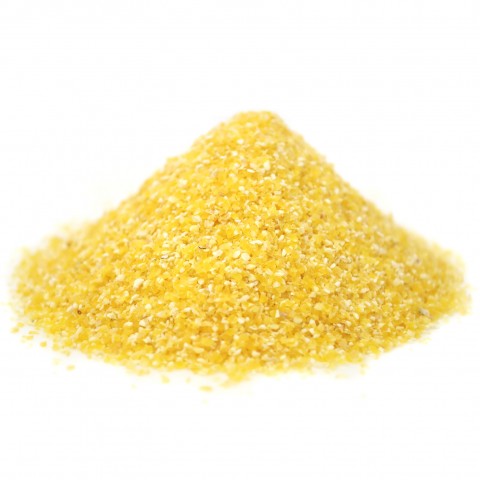
3. Spelling Mistakes – Compounds and Emphasis
Let’s start with a spelling mistake in Afrikaans that trips up native speakers, too: when to join words and when to separate them.
3.1 To join or not to join? — Compound words in Afrikaans
This is an important Afrikaans mistake to avoid, because splitting words that belong together can completely change the meaning of what you’re writing.
Afrikaans language tutors often preach that the rule of thumb is to compound. They’ll tell you that your spelling will, more likely than not, be correct.
And they’re right!
Take, for instance: vinger + nael (“fingernail”). This is correctly spelled vingernael.
Also, tafel + poot (“table leg”), which gets written as one word: tafelpoot.

Exceptions
There are exceptions to the rule, of course. For instance: skool + visse (“shoal of fish”). Joining these two words would completely change the meaning of the word. (Skoolvisse is not incorrect, but it would be a neologism—a newly created word—that’s rarely used. It would refer to fish belonging to a human school.)
Another exception is mediese fonds (“medical aid”). In Afrikaans, like in English, it’s incorrect to join these two words, and it should never be written that way.
Tip: For the more advanced Afrikaans students—a linguist once gave me a tip about compound words in Afrikaans. He pointed out that these, or other words that get written together, are always pronounced with the emphasis on the first syllable.
3.2 Sometimes it’s good to split…
Splitting words sometimes changes the meaning legitimately.
Take, for instance, the word opsoek.
This means “looking up someone or something,” like from a directory or at a specific address. Pronounce it with the emphasis on the first syllable.
Sample: Ek gaan my niggie opsoek. (Stress the first syllable when pronouncing.)
Translation: “I’m going to look up my cousin.”
However, splitting the words will turn them into a known term: op soek. This means “to look for someone or something.” (Here, again, pronunciation is important. The emphasis will fall on the second word, which changes the meaning somewhat.)
Sample: Ek is op soek na my niggie.
Translation: “I am looking for my cousin.”

As you can see, opsoek and op soek are closely related, and the difference in meaning is nuanced. Let me explain by adding context in an example situation.
You, chatting with your partner at the breakfast table:
- Ek gaan my niggie Riana opsoek vandag.
“I’m going to look up my cousin Riana today.”
Also you, addressing the guy who opened the door at your cousin’s last known address:
- Ek is op soek na my niggie Riana.
“I’m looking for my cousin Riana.”
4. Other Common Afrikaans Spelling Mistakes
The following mistakes are even common among native Afrikaans-speakers! Avoid embarrassment and impress your Afrikaner boss or friend with your superior spelling skills!
This list is not exhaustive, and you’ll see that some are loan words from other languages.
| Mistake in Afrikaans | Correct Afrikaans Spelling | Translation |
| agressie | aggressie | “aggression” |
| asperine | asperien | “aspirin” |
| Australie | Australië | “Australia” |
| brocolli | broccoli | “broccoli” |
| burgermeester | burgemeester | “mayor” |
| cappucino / capucino | cappuccino | “cappuccino” |
| deurgans | deurgaans | “throughout” |
| defnitief | definitief | “definitely” |
| dieët | dieet | “diet” |
| Epos / epos | e-pos | “email” |
| geintereseerd / geinterresseerd | geïnteresseerd | “interested” |
| graffitti / grafiti / grafitti | graffiti | “graffiti” |
| herhinder | herinner | “remind” |
| huistoe / winkeltoe / skooltoe | huis toe / winkel toe / skool toe | “going home / to the shop / to school” |
| ingeneur | ingenieur | “engineer” |
| interresant | interessant | “interesting” |
| Japannees | Japanees | “Japanese” |
| knië, kniee | knieë | “knees” |
| kominukasie / komunikasie | kommunikasie | “communication” |
| komittee, kommitee, kommittee | komitee | “committee” |
| leêr | lêer | “file” |
| nogals | nogal | “kind of” |
| Namibia | Namibië | “Namibia” |
| ommelet / omellet | omelet | “omelette” |
| onmiddelik | onmiddellik | “immediately” |
| sateliet | satelliet | “satelite” |
| sedertien | sedertdien | “since” |
| waardeur / wardeer | waardeer | “appreciate” |
| yogurt | jogurt | “yogurt” |
5. Why Afrikaans Mistakes are Nothing to Worry About
Apparently, children and Nobel Prize winners have a specific trait in common: they don’t allow mistakes to throw them off course.

And it makes sense! Think of how you learned to speak your native tongue. It took many adorable mistakes (and even more tries) before you started sounding human.
But you didn’t give up just because your speech wasn’t perfect after the third try! You kept at it and now you can speak fluently.
Expect to make many Afrikaans language-learning mistakes. Learn to love them for the teachers they are—over time, they will disappear. Almost like they’re friends for a season.
However, there’s nothing wrong with being prepared! So, while this list of common mistakes in Afrikaans is not exhaustive, we hope that it will help you master the language. That’s our main aim at AfrikaansPod101!
In fact—ask us in the comments if you’re wondering if something is a mistake in Afrikaans! We’d be happy to help you this way.
6. The Many Ways AfrikaansPod101 Can Help You Correct Afrikaans Mistakes
With AfrikaansPod101.com, you’ll be learning with the best team!
Sign up for a free online course now, and create a lifetime account. You’ll have access to the following and more:
- A vibrant online community
- Free lessons on iTunes
- Free audio books
- Excellent free apps
What’s not to love?!
If you’re serious about your learning, make use of our three different learning plans.
We’ve got you covered!

Your List of the Top 10 Afrikaans Questions and Answers

Questions are language constructs we use to elicit information from other people, making them crucial in communication! Knowing stuff helps you navigate your way in this world—every child knows this.
And any parent will tell you that even babies know how to “ask”!
So, if your plan is to connect and communicate with Afrikaners, it’s very important to learn or brush up on the most common Afrikaans questions and answers.
Afrikaners are nice—like the country’s climate, they’re warm and friendly. And they love to chat, especially with new friends! So at AfrikaansPod101.com, we make sure that you master the Afrikaans you need to connect with them.

Learn the most useful Afrikaans questions and answers quickly and easily in this article (and even more when you sign up)! This way, you’ll be able to converse in Afrikaans in no time, and reap all sorts of benefits.
Using Afrikaans questions, and making use of the Afrikaans question word list in this article, will boost your confidence, and can even help you make new friends. Not a bad prospect.
So, let’s not waste time. Get cracking on this list of the top Afrikaans questions and answers!
 Table of Contents
Table of Contents
- Wat is jou naam? / What is your name?
- Waarvandaan is jy? / “Where are you from (originally)?”
- Waar bly jy? / “Where do you live?”
- Waar bly jou familie? / “Where does your family live?”
- Waar werk jy? / “Where do you work?”
- Kan jy Engels praat? / “Can you speak English?”
- Hoe oud is jy? / “How old are you?”
- Wat is jou foonnommer? / “What is your phone number?”
- Wanneer is jou verjaarsdag? / “When is your birthday?”
- Hoeveel kos hierdie? / “How much does this cost?”
- Bonus: Hoe sê mens ___ in Afrikaans? / “How do you say ___ in Afrikaans?”
- AfrikaansPod101 Makes Learning Afrikaans Questions and Answers Super-Easy!
1. Wat is jou naam? / What is your name?

This is a very important question in Afrikaans when introducing yourself and getting to know someone. (Okay, well, it’s important in every language, if you want to get on with people!)
This is a pretty straightforward question, and it’s commonly used in a variety of situations.
However, there are other ways to ask the same thing.
Alternate Ways of Asking
1.1 Hoe heet jy? / “What are you called?” (Roughly translated)
This is an antiquated way to ask for someone’s name. Because this Afrikaans question is related to Dutch, it doesn’t get used that often anymore; when it does get used, it’s usually by older folks.
1.2 Wat kan ek jou noem? / “What can I call you?”
Even in English, this question sounds slightly flirtatious, doesn’t it? But fortunately, there’s nothing improper about it. So, if you need to put an Afrikaans-speaking person at ease, this is a nice phrase to use—with a calm, friendly smile and eye contact, of course.
1.3 Wat is jou volle name, asseblief? / “What are your full names, please?”
This is a phrase used to ask for one’s name and surname, and it’s mostly used in official situations.
Possible Answers
Now, let’s look at some different ways you can answer these Afrikaans questions.
1.4 My naam is Annabel. / “My name is Annabel.”
A straightforward, simple answer, suitable for use in any situation.
1.5 Noem my Annabel. / “Call me Annabel.”
This is a slightly informal response, and it’s good to use if you need to be friendly and engaging.
1.6 Ek heet Annabel. / “I am called Annabel.”
The antiquated response to the antiquated Afrikaans question above (1.2).
1.7 Jy mag my op my naam noem. / “You may call me by my name.”
If someone knows your name and you want to put them at ease, you can tell them this. It indicates that you’re comfortable with a certain level of trust and informality between the two of you.
If you guessed that this can also be the flirtatious, playful (and cheeky!) reply to question 1.3 above, you’d be right!
It could also be a rather facetious response, so better not use it when you’re talking to someone very senior to you (e.g. a police officer, the traffic cop stopping you on the road, or a doctor).
2. Waarvandaan is jy? / “Where are you from (originally)?”
Afrikaans-speaking South Africans are, by nature, inquisitive people who want to know things about your personal history straight away!
Fear not, they’ll be willing to share the same information about themselves. “Open” and “gregarious” are terms that describe Afrikaners well. So, start unpacking your family history already—beginning with one of the most common questions in Afrikaans asked of foreigners!
This Afrikaans question is used interchangeably with another one:
2.1 Waar kom jy vandaan? / “Where do you hail from?”
Most of the time, both questions specifically ask about your place of birth and/or where you grew up.
Possible Answers
2.2 Ek kom van Utrecht af. / “I’m from Utrecht.”
This could imply that you’re still living there, but not necessarily.
2.3 Ek is gebore in Utrecht en het daar grootgeword. / “I was born in Utrecht and grew up there.”
This is a more specific answer that leaves little room for interpretation.
These Afrikaans questions and answers are often confused with the ones directly below, even by locals!
3. Waar bly jy? / “Where do you live?”
Yup, this person wants to know where you’re currently residing. This can mean that they’re asking for the location of your temporary or permanent residence. Depending on the situation and how much you trust the person, answer with as many (or as few) details as you prefer.
Next is a question that’s a bit more informal, and asks for the same information but with more details.
3.1 Wat is jou huisadres? / “What is your home address?”
Have it ready on a piece of paper, in case it’s the taxi driver asking! Or better—learn it by heart. Your address is an important bit of information, no matter which country you’re visiting.
Possible Answers
3.2 Ek bly tans in Kaapstad. / “I currently live in Cape Town.”
Obviously, fill in your own city or town of residence!
Answering question 3.1:
3.3 My woonadres is ___ [e.g. Stay Nice Guest House; Main Straat, 48 Blouberg Strand]. / “My residential address is ___.”
The sample (between brackets) is for a temporary address. Again, fill in your own details. You could add your permanent residential address here, too.
As an aside: Just like in any other country, don’t ditch your gut feeling or the habit of keeping personal information safe when visiting.
South Africans are, as a rule, friendly and helpful people, but charlatans and criminals can live anywhere. So, if someone or something looks or feels too good to be true…well, you know how the saying goes.

4. Waar bly jou familie? / “Where does your family live?”
This question can be asked in official situations, such as at a police station, in a hospital, or by your South African employer. Answer truthfully. And keep in mind that you’ll very likely be asked this in informal situations too, so don’t say you weren’t warned!
Relax, though. Your newly acquired Afrikaans friend is not a plotting serial killer.
They’re showing that they like and want to know more about you. This instant intimacy is a hallmark of the way we roll at the very southern point of Africa.
Answer vaguely if you don’t feel comfortable with this level of info-sharing yet. Don’t worry! Your Afrikaner friend will understand.
That said—just don’t lie, especially if you can see this friendship going somewhere good. Later, you’ll regret not being honest. Truthfulness is an important quality in Afrikaner relationships.
Possible Answers
4.1 My familie bly in Utrecht in Nederland. / “My family lives in Utrecht in the Netherlands.”
Pretty self-explanatory. This can refer to where your birth and/or extended family still resides.
A variation of this answer is:
4.2 My familie is van Utrecht. / “My family hails from Utrecht.”
Like in English, there is a distinction. This means that your family is from that area, but not necessarily living there still.
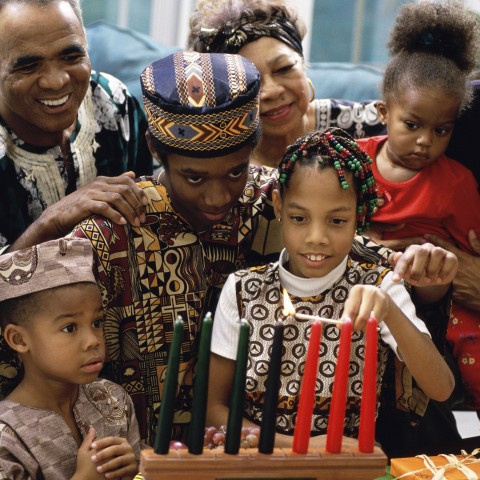
5. Waar werk jy? / “Where do you work?”
This is very likely something you’ll be asked in both official and social situations. Your answer will probably include the name of a company and a location.
Here’s a similar question:
5.1. Wat doen jy vir ‘n lewe? / “What do you do for a living?”
The difference is nuanced, but, like in English, the answer doesn’t necessarily include the name of your employer.
Possible Answers
5.2 Ek werk vir Vodacom in Kaapstad. / “I work for Vodacom in Cape Town.”
This one is self-explanatory, but keep in mind that it’s the short version. If an official person asks this question, you could include your actual work address. Insert your own employment details, of course.
5.3 Ek is ‘n vliëenier. / “I am a pilot.”
If the conversation is informal, this is all you need to say in reply to question 5.1.
5.4 Ek het my eie besigheid en werk van die huis af. / “I have my own business and I work from home.”
For the entrepreneurs!

6. Kan jy Engels praat? / “Can you speak English?”
A vital question in Afrikaans! Especially if you’ll battle just to understand the replies.
Here’s a variation of this question:
6.1 Praat jy Engels? / “Do you speak English?”
This is a slightly more informal way of asking the same thing. Obviously, replace “English” with the language of your choice.
Possible Answers
6.2 Ek praat Afrikaans. / “I speak Afrikaans.”
This reply will imply that you can speak it rather well.
6.3 Ek praat nie Afrikaans nie. / “I don’t speak Afrikaans.”
This is a handy phrase, especially if you’re in deep-rural South Africa. You’d be more likely to get swift assistance if the native speaker understands that you can’t speak Afrikaans well yet.
6.4 Ek leer nog Afrikaans praat. / “I’m still learning to speak Afrikaans.”
At least you’re trying! Like in most other countries, your effort to learn the natives’ language will be much appreciated, admired, and encouraged.
6.5 Ek praat ‘n bietjie Afrikaans. / “I speak a bit of Afrikaans.”

7. Hoe oud is jy? / “How old are you?”
Uhm, not considered the most polite question in social settings—especially when addressing older women!
We also won’t ask you to divulge your age…unless you look twenty years younger than you are. But then, you’re probably used to getting this question anyway.
On the topic of social etiquette, Afrikaners are pretty down-to-earth, pragmatic, and easy-going people.
So, in our books, there are very few unforgivable social gaffes. These are not even, strictly speaking, social gaffes. It’s your common, garden-variety bad behavior that we frown upon socially.
For instance, don’t hit a child. Nowadays, that’s a crime in South Africa, even if the child is yours. Actually, just don’t hit anyone.
And don’t be rude, selfish, or insulting. This type of behavior lands guests on the other side of the welcome mat—probably on their butt. Most Afrikaners are great at setting boundaries.

You’ll be forgiven many small social sins, especially once we sense that you’re reliable, transparent, and a cool person!
Anyway, take the cue and rather don’t ask this Afrikaans question unless you’re making conversation with one of the kiddos! Then make a fuss of the reply, no matter what.
Possible Answers
7.1 Ek is ___. / “I am ___.”
Insert your age in the blank. (To learn Afrikaans numbers, do visit us at AfrikaansPod101.com. You can learn to count straight away—anywhere and for free!)
The longer version of this reply is:
7.2 Ek is vyf-en-twintig jaar oud. / “I am twenty-five years old.”
Again, just add your own age. Both are commonly used, but the former is the more colloquial reply.
7.3 Ek is vyftig jaar en ses maande oud. / “I’m fifty years and six months old.”
In case you need to be very specific.
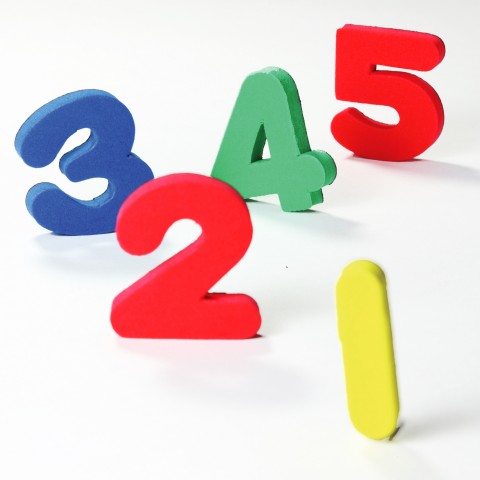
8. Wat is jou foonnommer? / “What is your phone number?”
Uncomplicated and self-evident, this question can be used in any situation. You can also ask a simpler question:
8.1 Wat is jou nommer? / “What is your number?”
This will only work if the context is clear, of course.
Possible Answers
8.2 My foonnommer is ___. / “My phone number is ___.”
The short version is:
8.3 My nommer is ___. / “My number is ___.”
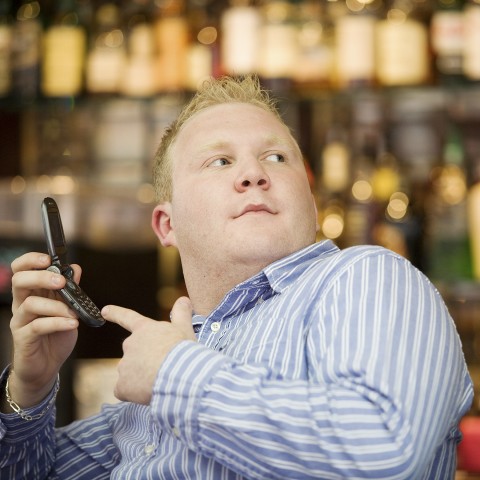
9. Wanneer is jou verjaarsdag? / “When is your birthday?”
Like the question about age, we don’t ask this right after learning a person’s name. But it’s not such a sensitive topic, so you won’t be ostracized if you do ask this of your new Afrikaner friend.
And we love birthday parties!
This question, though, should not be confused with:
9.1 Wat is jou geboortedatum? / “What is your birth date?”
The difference should be evident.
Possible Answers
9.2 My verjaarsdag is 22 November. / “My birthday is November 22.”
Just fill in your own birthday.
9.3 My geboortedatum is 22 November, 1969. / “My date of birth is November 22, 1969.”
Answering question 9.1.
9.4 Ek is gebore op 22 November, in 1969. / “I was born on November 22, in 1969.”

10. Hoeveel kos hierdie? / “How much does this cost?”
In South Africa, you can’t haggle in shops; it’s unacceptable. An item’s price is its price, and it’s almost never negotiable. So, you won’t be using this question to quibble about the cost of something. Save that for the casual street markets!
However, it’s good to know this Afrikaans question when the price isn’t evident.
A variation:
9.1 Wat is die prys hiervan? / “What is this thing’s price?”
You can use this in restaurants, for instance, to learn the price of a specific dish. It needs to be clear what you’re referring to, of course.
You can also modify the question by adding: … in Amerikaanse dollars / “…in American dollars.”
Possible Answers
9.2 Dit kos ses-honderd Rand. / “It costs six-hundred Rand.”
The Rand, or ZAR, is South Africa’s monetary unit. This amount will get written like this: R600.
BTW, to learn about Afrikaans money, subscribe to AfrikaansPod101 now for access to a quick lesson!

11. Bonus: Hoe sê mens ___ in Afrikaans? / “How do you say ___ in Afrikaans?”
Insert the English word, or indicate what you mean. This question is especially handy when you first start learning Afrikaans, and you’re going to ask this a lot. Shorten it by leaving out in Afrikaans.
And fear not—we’re patient with students! We’ll translate for you with a smile.
You can also ask:
10.1 Wat is ___ in Afrikaans? / “What is ___ in Afrikaans?”
The difference between the questions should be evident. Choose the one that best fits your situation.
Possible Answers
10.2 Jy sê ___. / “You say ___.”
10.3 Dit is ‘n ___. / “That is a(n) ___.”
10.4 Dit is ‘n ___ in Afrikaans. / “That is a(n) ___ in Afrikaans.”
This is a more elaborate answer. Leave out the article ‘n when you’re not referring to a specific thing.
10.5 Ek weet nie. / “I don’t know.”
Well, sometimes you just don’t.

Well done! If you know these Afrikaans questions and answers by heart, you’re well-equipped to start a conversation.
Are there any other questions and answers in Afrikaans you want to know? Let us have them in the comments!
Before we conclude, here’s the promised list of Afrikaans question words:
| Afrikaans Question Word | English Translation |
| Wie | “Who” |
| Wat | “What” |
| Waar | “Where” |
| Wanneer | “When” |
| Hoekom | “Why” |
12. AfrikaansPod101 Makes Learning Afrikaans Questions and Answers Super-Easy!
Afrikaans, which is closely related to Dutch, is both an easy and challenging language to master. This is especially true if your own language is not Germanic-based.
But don’t fear!
We make it easier for you with our innovative approach to language-learning. Outlined below are just some of the perks you can expect when you enroll:
- Plenty of recorded words, phrases, and conversations in Afrikaans to train your ear and help you with pronunciation.
- Recorded lessons, like this one, about good questions in Afrikaans!
- Plenty of free online tools upon subscription to make your life easier while learning to speak Afrikaans. (Such as, for instance, this free Afrikaans dictionary.)
- Thousands of lessons tailored to meet you at your level of language proficiency, while giving you all you need to help yourself straight away, such as this free list of Afrikaans Key Phrases.
- Several learning options that suit your pocket and your language needs. For instance, fast-track your fluency with access to your own online teacher.
Enroll with AfrikaansPod101.com now for a lifetime membership! You’ll be happy with us—there’s no question about it!

Afrikaans Sentence Patterns – Your Best Guide!

Afrikaans is a daughter-language of Dutch, which informs about ninety percent of its vocabulary. However, many other languages helped shape Afrikaans! These include Malay and all of the African languages, as well as Portuguese, Arabic, French, German, and even Russian.
With such a mixed pot, you’d think that Afrikaans sentence patterns would be very complex and difficult to learn. You would be both right and wrong!
Certain aspects of Afrikaans sentence structures are indeed complex, but the basics are pretty easy to master. With a bit of effort, you could be speaking like a native in no time.
Also, at AfrikaansPod101.com, we understand that in order to master the content successfully, the learning process needs to be enjoyable. So we make sure to keep our lessons easy and fun!
In this article, we offer you a good number of Afrikaans sentence pattern examples that should help you get the basics under your belt.
But before we proceed with that—why is it important to learn these sentences as soon as you start with your Afrikaans studies?
 Table of Contents
Table of Contents
- 1. Why is it Important to Master Afrikaans Sentence Patterns?
- 10 Afrikaans Sentence Patterns
- What Makes AfrikaansPod101 Different?
1. Why is it Important to Master Afrikaans Sentence Patterns?
It’s important to quickly learn at least the basic Afrikaans sentence patterns if you wish to:
1) Understand native Afrikaans-speakers more easily
2) Be better understood by native speakers when you speak Afrikaans
3) Understand Afrikaans media, such as news, movies, TV, music, books, etc., more easily
4) Significantly ease your Afrikaans learning process

In fact, mastering any language’s sentence patterns flows naturally from learning its vocabulary—it’s part of the language’s very structure!
So, let’s get you going on these Afrikaans sentence pattern examples. Once you’ve memorized them, you should find that the language will make much more sense to you.
Note: It will also help you a lot to study our Afrikaans sentence word order blog post!

2. 10 Afrikaans Sentence Patterns
1 – Linking Pronouns and Nouns with the Verbs “Is,” “Am,” and “Are”
The Afrikaans sentence pattern for linking nouns is very similar to that in English. You’ll see that the simplest way to join two nouns follows exactly the same structure.
Of course, more complex sentences follow different patterns, but it’s best to start with the basics first!
1.1 Ek is Gerda. / “I am Gerda.”
1.2 Ek is ‘n skrywer. / “I am a writer.”
1.3 Daardie vrou is my baas. / “That lady is my boss.”
1.4 Daardie ou is my man. / “That guy is my husband.”
1.5 Hy is ‘n vegvlieënier. / “He is a fighter pilot.”
1.6 Ons kinders is internasionale skool studente. / “Our children are international school students.”
1.7 Ons is ‘n gesin wat in die buiteland bly. / “We are a family living abroad.”

Note: Did you notice that there’s only one verb (is) in Afrikaans that modifies the pronoun and noun? English has three, each one used depending on the noun or pronoun: “is,” “am,” and “are.”
2. Describing Someone or Something
Again, the basic Afrikaans sentence construction is very similar to that in English when we describe someone or something. We use adjectives (byvoeglike naamwoorde) and adverbs (bywoorde) for this purpose.
2.1 Jy is vriendelik. / “You are friendly.”
2.2 My man is aantreklik. / “My husband is attractive.”
2.3 Daardie man is ‘n goeie sanger. / “That man is a good singer.”
2.4 Die groot klavier was ‘n mooi instrument. / “The big piano was a beautiful instrument.”
2.5 Baie dankie vir die vriendelike uitnodiging. / “Thank you very much for the friendly invitation.”
3. Expressing Want
Afrikaans phrases for expressing want are a bit more complex than those in English.
There are two ways to express want. One involves the use of the verb and adverb wil and hê, and the other simply uses the verb soek.
Here are some useful examples:
3.1 Ek wil ‘n koffie hê, asseblief. / “I want a coffee, please.” (You could also leave out the article ‘n, just like in English.)
3.2 Sy wil suiker hê, asseblief. / “She wants sugar, please.”
3.3 Ek wil ‘n kamer hê, asseblief. / “I want a room, please.”
This is good and polite Afrikaans. Wil and hê always flank the object (a noun, or the thing you want) on both sides.
You could also express want in another way. But, while it’s colloquial and often used, it’s not as grammatically pure as the previous examples.
3.4 Ek soek ‘n dokter, asseblief. / “I’m looking for a doctor, please.”
3.5 Ek soek dringend hulp, asseblief. / “I am urgently looking for assistance, please.”

This one’s a bit tricky, because soek also means “to search for,” as in:
3.6 Ons soek my suster. / “We are searching for my sister.”
3.7 Hulle soek die verlore hond. / “They are searching for the lost dog.”
You will, of course, be understood if you omit asseblief (“please”), but similarly to some other languages, saying “please” is an indicator of respect in Afrikaans.
4. Expressing Need
Wants are different from needs, and this is clearly expressed in Afrikaans, too. There are two ways to express your needs.
First, the simple Afrikaans sentence structure always sandwiches the noun (object of your need) between the verb het and the adverb nodig.
4.1 Ek het kos nodig. / “I need food.”
4.2 Die man het kos nodig. / “The man needs food.”
4.3 Ek het ‘n vurk nodig. / “I need a fork.”
4.4 Daardie vrou het ‘n vurk nodig. / “That woman needs a fork.”

This is good colloquial Afrikaans, and is most popularly used.
The other, more formal way of making a need clear uses the verb benodig. Use this in formal documents or speech, such as at work or in court.
4.5 Ek benodig die verslag. / “I need the report.”
4.6 Die baas benodig die syfers. / “The boss needs the figures.”
More Afrikaans sentence examples:
4.7 Ek het medisyne nodig, asseblief. / “I need medicine, please.”
4.8 Sy het water nodig. / “She needs water.”
4.9 Die siek kat het ‘n veearts nodig. / “The ill cat needs a vet.”
4.10 Die polisie benodig jou besonderhede. / “The police need your details.”
4.11 Jy benodig ander dokumente om ‘n visa te kry. / “You need different documents to get a visa.”
5. Expressing a Like or Preference
When you like something, you use the verb and particle hou van to express it in the simplest Afrikaans, like this:
5.1 Ek hou van jou. / “I like you.”
5.2 Sy hou van roomys. / “She likes ice cream.”
5.3 Die man hou van kuns. / “The man likes art.”
5.4 Ek hou daarvan om op die strand te stap. / “I like taking a stroll on the beach.”
5.5 Hy hou daarvan om in die stort te sing. / “He likes to sing in the shower.”
5.6 Ek hou van Imagine Dragons se musiek. / “I like Imagine Dragons’ music.”

6. Asking Someone to Do Something
Like in English, it’s considered polite and respectful to use “please” (asseblief) when you’re asking someone to do something. It doesn’t matter whether you place it at the beginning or the end of the sentence, or just after the first verb—as long as it’s there! Here are some examples of how to make sentences in Afrikaans when asking someone to do something.
6.1 Sit, asseblief. / “Sit, please.”
6.2 Sit dit neer, asseblief. / “Put it down, please.”
6.3 Asseblief gee dit vir my aan. / “Please hand it to me.”
6.4 Groot-asseblief, moenie raas nie! / “Big please, don’t make a racket!”
6.5 Staan asseblief voor die kamera. / “Please stand in front of the camera.”
Note: Body language is very important, as is how you address the person whom you’re asking to do something.
- A sharp, short tone will sound like a command. (Try to avoid this, unless you’re in the army and can pull rank!)
- A smile, a friendly hand gesture, and a calm voice will be more of an invitation to act than an order.
- A polite request will only require a friendly, calm manner while looking the other person in the eye.

7. Asking for Permission
Permission-asking is another part of the South African social etiquette. Be sure to memorize Asseblief mag ek … (“Please may I…”), because this phrase is what you can start most permission-asking sentences with.
You could also add asseblief to the end of the sentence; it won’t be incorrect.
7.1 Asseblief mag ek sit? / “Please may I sit?”
7.2 Asseblief mag ek gaan? / “Please may I go?”
7.3 Mag ek ingaan, asseblief? / “May I enter, please?”
7.4 Asseblief mag ek die badkamer gebruik? / “Please may I use the bathroom?”
7.5 Mag ek op hierdie stoel sit, asseblief? / “May I sit on this chair, please?”
7.6 Asseblief mag ek vroeg loop vandag? / “Please may I leave early today?”
Again, if you want a good response, look the person in the eye, and remain friendly and calm.
You can also use this phrase to ask for something, such as tickets. Like this:
7.7 Mag ek kaartjies kry, asseblief? / “May I have tickets, please?”
7.8 Mag ek koffie kry, asseblief? / “May I have coffee, please?”

8. Asking for Information
South Africa is a fabulous tourist destination, and the natives are generally helpful and friendly. Yet finding your way around the country will always be easier if you know how to ask some basic questions in Afrikaans.
When asking questions in order to obtain information, always start with a question word:
- Wat? / “What?”
- Wie? / “Who?”
- Waar? / “Where?”
- Wanneer? / “When?”
- Hoeveel? / “How much?”
- Waarom or Hoekom? / “Why?”
- Hoe? / “How?”
Of course, all of these words on their own can be used as a question to ask information, if the person you’re addressing knows what you’re referring to.
Otherwise, you can use some of the following questions with the most pertinent question words.
A. Wat / “What”
A.1 Wat is hierdie? / “What is this?”
A.2 Wat doen jy? / “What are you doing?”
A.3 Wat doen jy vir ‘n lewe? / “What do you do for a living?”
A.4 Wat moet ek aantrek? / “What must I wear?”
A.5 Wat wil jy nou doen? / “What do you want to do now?”
B. Wie / “Who”
B.1 Wie is jy? / “Who are you?”
B.2 Wie kan ek help? / “Who can I help?”
B.3 Wie kan ek vra? / “Who can I ask?”
B.4 Met wie moet ek praat? / “Who should I talk to?”
B.5 Wie kan my help, asseblief? / “Who can help me, please?”
C. Waar / “Where” AND Waarheen / “Where to”
C.1 Waar is die badkamer, asseblief? / “Where is the bathroom, please?” (Replace badkamer/”bathroom” with any noun, such as polisiestasie/”police station,” hospitaal/”hospital,” lughawe/”airport,” strand/”beach,” ingang/”entrance,” and so forth.)
C.2 Waar bly jy? / “Where do you live?”
C.3 Waar kan ek kos koop? / “Where can I buy food?”
C.4 Waar is die naaste ATM, asseblief? / “Where is the closest ATM, please?”
(Again, replace ATM with any relevant noun.)
C.5 Waar kan ek ‘n taxi kry? / “Where can I get a taxi?”
C.6 Waarheen gaan hierdie trein? / “Where does this train go?”
C.7 Waarheen kan mens gaan om te dans? / “Where can one go to dance?”

D. Wanneer and Hoe Laat / “When” and “What time”
D.1 Wanneer kom jy? / “When will you come?”
D.2 Wanneer kom die bus? / “When will the bus come?”
D.3 Hoe laat is jou vlug? / “What time is your flight?”
D.4 Hoe laat begin die vertoning? / “What time does the show start?”
D.5 Wanneer verwag jy hom? / “When are you expecting him?”
D.6 Wanneer arriveer ons? / “When will we arrive?”
Which Afrikaans sentence patterns do you think are the most relevant to you? Share with us in the comments!
3. What Makes AfrikaansPod101 Different?
So, these common Afrikaans sentence patterns will go a long way to help you communicate fast and with clarity. At AfrikaansPod101.com, we make that process even easier with our culturally relevant content, and our practical, fun approach to learning.
When you enroll, you can expect to receive many benefits, including different membership options. Depending on your personal needs, these will unlock functions such as a personal tutor (available via text nearly 24/7), or access to knowledgeable, energetic hosts who are native Afrikaans-speakers.
You can also get access to downloadable apps and many other tools you can use on your Android or IOS phone, tablet, or laptop—everywhere and anywhere! You can practice, for instance, an Afrikaans word a day or these 100 Core Afrikaans Words, anywhere you are! Or, on your own time, learn with the help of these Afrikaans vocabulary lists.
Get a new lesson delivered every day, and easily learn to speak Afrikaans like a native! Using these basic Afrikaans sentence patterns, you’ll soon be fluent in every way. And with enough practice, you’ll be using them like a native.

Your Most Comprehensive List of 100 Adverbs in Afrikaans

So, you’re keen to tell your Afrikaans friends what you’ve been up to. And you have all the right werkwoorde (“verbs“) to manage this well! But if you are, for instance, really excited about something you did, or about something that happened, verbs alone will be inadequate. You’ll have to use an adverb in Afrikaans here. It’s the difference between saying: “The group laughs” and “The group laughs happily.”
In the last sentence, “happily” is the adverb, and its omission could affect the meaning of the sentence, won’t you agree? For this reason, we consider adverbs important at AfrikaansPod101, so let us help you master them easily! In fact, why not start with our blog post that tells you almost everything about Afrikaans verbs? Then, dare to dive into the deep end with these tricky Afrikaans conjugations…
 Table of Contents
Table of Contents
- Why is Mastering Adverbs in Afrikaans Important?
- Definition of an Adverb in Afrikaans
- Adverbs as Adjectives and Vice Versa
- Lists of Adverbs in Afrikaans
- AfrikaansPod101 Can Help You Ace Your Adverbs in Afrikaans!
1. Why is Mastering Adverbs in Afrikaans Important?
As mentioned, an adverb can affect the meaning of what’s being expressed. Accuracy when reporting something could be especially crucial in situations like the following (underlined words are bywoorde):
1) When visiting the doctor, it would help if you could say: My elmboog beweeg glad nie. (“My elbow doesn’t move at all.”) Or maybe: Ek sluk moeilik. (“I swallow with difficulty.”) Knowing how to use Afrikaans adverbs properly can help a medical professional help you better!
2) When visiting the police or appearing in court, it would help if you could report: Hy het my baie hard geslaan. (“He hit me very hard.”) Or: Die kar het te vinnig gery. (“The car drove too fast.”)
3) When you have to give directions, it would help if you could instruct: Draai links by die verkeerslig. (“Turn left at the traffic light.”) Or: Stop hier. (“Stop here.”)

4) When you talk to your Afrikaans-speaking manager or employer, it would help if you could say: Ek het gister gewerk. (“I worked yesterday.”) Or: Hy het laat aangekom. (“He arrived late.”)
These are only a few examples, but it should be clear that adverbs are important to know and master!
2. Definition of an Adverb in Afrikaans
As mentioned, an adverb in Afrikaans is called a bywoord. Like in English, it describes or says something about the verb (werkwoord) in a sentence.
According to Wikipedia, adverbs usually give more information about manner, place, time, frequency, degree, and so on. They answer questions about how, when, where, and why something happened, and an adverb can be composed of one word or many words (called an adverbial phrase or clause).
3. Adverbs as Adjectives and Vice Versa
Did you know that all adjectives can be used as adverbs too?
For instance:
i) Die gelukkige kind lag. (“The happy child laughs.”)
The bolded words are adjectives. Do you know the grammar rule here? Why is gelukkige considered an adjective? Let us know in the comments!
ii) Hy voel gelukkig. (“He feels happy.”)
This time, the bolded words are adverbs, because they describe or say more about the action (voel means “feel”).
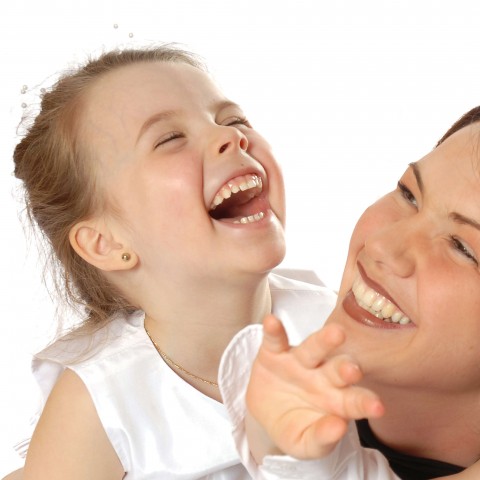
4. Lists of Adverbs in Afrikaans
There are several types of adverbs in Afrikaans, grouped according to their functions:
1. Time (Tyd)
2. Place (Plek)
3. Manner (Wyse)
4. Degree and Frequency (Graad / Hoeveelheid)
5. Modality (Modaliteit)
6. Causality (Oorsaak)
7. Circumstance (Omstandigheid)
8. Relation and Restriction (Verhouding en Beperking)
9. Reason (Rede)
10. Measurement (Maat)
11. Purpose (Doel)
12. Inquiring (Vraend)
As you work through these, you will find that the adverbs often overlap in function.
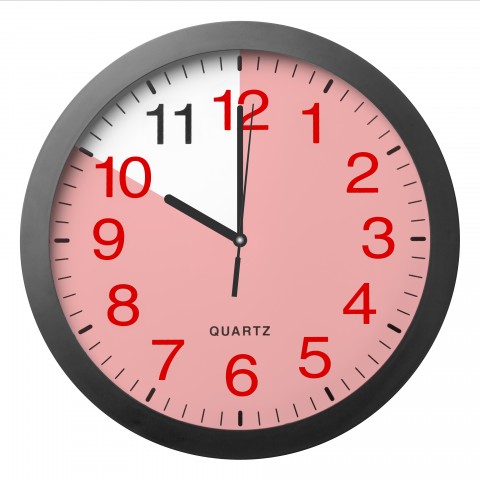
| English | Afrikaans |
|---|---|
| Adverbs of Time | Bywoorde van Tyd |
| “Early” / “Earlier” / “Earliest” “The rooster crows early. It wakes up the earliest.” | Vroeg / Vroeër / Vroegste Die haan kraai vroeg. Dit word die vroegste wakker. |
| “Late” / “Later” / “Latest” “This train leaves the latest.” / “Rather go later.” | Laat / Later / Laatste Hierdie trein vertrek die laatste. / Gaan liewer later. |
| “Next” “You can go next.” | Volgende Jy kan volgende gaan. |
| “Previously” “He lived in the UK previously.” | Vroeër / voorheen Hy’t vroeër/voorheen in die VK gebly. |
| “By day” “I work by day.” | Bedags Ek werk bedags. |
| “At night” “I sleep at night.” | Snags Ek slaap snags. |
| “In time” “They left in time.” | Betyds Hulle het betyds vertrek. |
| “Nowadays” “Nowadays, we sing.” | Deesdae Deesdae sing ons. |
| “In the afternoons” “We play in the afternoons.” | Smiddae / Smiddags Ons speel smiddae. |
| “Seldom” “The cat seldom eats.” | Selde Die kat eet selde. |
| “Quickly” “Come quickly.” | Gou / gou-gou Kom gou-gou. |
| “Soon” / “One of these days” “He’ll fly soon.” | Eersdaags / Binnekort Hy sal binnekort vlieg. |
| “First” “We first lived here.” | Eers Ons het eers hier gebly. |
| “At last” “At last, he replies.” | Uiteindelik Uiteindelik antwoord hy. |
| “Sometimes” “Sometimes the child cries.” | Soms Soms huil die kind. |
| “Henceforth” “Henceforth, you must drive.” | Voortaan Voortaan moet jy bestuur. |
| “Often” “The girl often dances.” | Gereeld Die meisie dans gereeld. |
| “Time and again” “We are being warned time and again.” | Telkens Ons word telkens gewaarsku. |
| “Long” “I finished long ago.” | Lankal Ek is lankal klaar. |
| “Suddenly” “We suddenly stop.” | Skielik / Meteens Ons stop skielik. |
| “Immediately” “Drink immediately.” | Dadelik / Onmiddelik Drink dadelik. |
| “Forever” “They left forever.” | Vergoed Hulle is vergoed weg. |
| “Once” “Once there was a witch.” | Eenmaal Eenmaal was daar ‘n heks. |
| “Meanwhile” “Meanwhile, he laughed.” | Intussen Intussen lag hy. |
| “Yet” “She is yet to come.” | Nog Sy moet nog kom. |
| “Then” “Then I will write.” | Dan Dan sal ek skryf. |
| “Never” “He never showed up.” | Nooit Hy het nooit opgedaag nie. |
| “Always” “I will always love you.” | Altyd Ek sal jou altyd liefhê. |

Adverbs of Place / Bywoorde van Plek
With us, you get to learn these adverbs and how to use them in easy, fun ways, and from a native Afrikaans speaker, too! Also, if you sign up with us, you’ll get immediate access to free tools, such as hundreds of vocabulary lists, a comprehensive core word list, a key phrase list, and a word of the day every day. That’s a bargain! So, sign up now for a free lifetime account, and you’ll immediately be able to use other tools too, such as these hugely helpful Flashcards. You’ll also get space to create your own personalized Word Bank. With application and persistence, and the help of our fantastic team, you’ll be able to speak Afrikaans like a native in no time at all! Enroll today. Before you leave, let us know in the comments if we missed any important adverb in Afrikaans that you still want to know! We’ll be glad to help. So, you know all about verbs in Afrikaans, but you’re still unsure about conjugations. No problem! Let’s learn about Afrikaans verb conjugation together. In Afrikaans, it’s pretty simple, as verbs conjugate (vervoeg) in only a few instances. In other words, with most Afrikaans tenses, there are some changes to sentence structure and words, but not to the verb. The only exceptions are in the case of past tenses and the present participle. Fantastically easy, right? Yes! With AfrikaansPod101, this is definitely the case. Let’s unpack this grammar rule in more detail, starting with some definitions. These two terms are often confused, which is understandable. They’re very closely related. Fortunately, they’re not difficult to distinguish and can, in many instances, be used interchangeably. “Inflections” (verbuigings) is a general term that refers to form changes that can occur to sentences, verbs, nouns, etc., based on a number of variables. “Conjugations” (vervoegings) is a subset of inflections that applies only to verbs. Its counterpart for nouns is called “declensions.” So, all conjugations are inflections, but not all inflections are conjugations. Also, strictly speaking, calling them “Afrikaans verb conjugations” is a tautology, meaning that the use of “verb” is redundant. This is because, by definition, only verbs can be conjugated! (Think: “The frozen ice is cold!”) Afrikaans verbs are conjugated for time only, as previously stated. They don’t inflect (change), for instance, for nouns and pronouns, meaning the verb stays the same no matter which noun or pronoun you use. This differs from English and some other Germanic languages, where the verb does change or inflect according to the noun or pronoun. To illustrate this unique facet of Afrikaans conjugation, take a look at the English and Afrikaans tables below: ENGLISH From the table above, you should notice that the verbs “sit” and “eat” inflect with an “-s” at the end for singular nouns and pronouns. For plural nouns and pronouns, only the base forms of the verbs are used, meaning the “-s” is omitted. All these changes take place when you’re using the present tense. For past tense use, they inflect again…can you spot the differences? Let us know in the comments! Afrikaans, in contrast, is totally easy: AFRIKAANS Here, it’s clear that the verbs (“sit” and “eat”) don’t inflect at all for any of the pronouns and nouns. Super easy! With past tenses, as well as the present participle, conjugation in Afrikaans is a different story. For the sake of good understanding, let’s take a look at when and how conjugations and verb inflections happen in different types of Afrikaans sentences. Important Note for Table I: Just a reminder that “inflection” refers to changes that were made to the sentence and any words other than verbs. “Conjugation” refers to changes to verbs only. Table I A bit confused? That’s totally okay! Let’s quickly test your knowledge with an easy quiz… Identify the inflected verb (conjugation) in the following sentences and let us know your answers in the comment section! 1. Die man het geëet. / “The man ate.” 2. Ons sal weer lag. / “We will laugh again.” 3. ‘n Perd het kouend gestaan by die dammetjie. / “A horse stood chewing by the pond.” 4. Die mooi vrou praat sag. / “The pretty woman speaks softly.” 5. Die motor het vinnig gery. / “The car drove fast.” 6. Al die blomme is geurig. / “All the flowers smell good.” In any language, grammar usually takes some time to master. For this reason, it’s best if you team up with…well, the best teachers you possibly can! We hope you enjoyed learning about Afrikaans verbs and their conjugations with us. Are you ready to start practicing, or do you still have questions? Let us know in the comments! Again, AfrikaansPod101 takes the lead with many excellent Afrikaans learning tools to help you master conjugations, inflections, and so much more—easily and almost effortlessly! While you’re learning about verb conjugations in Afrikaans, lessons like these are helpful, but we have so many more learning options for you, too! These tools include: 1. An extensive vocabulary list, updated regularly. 2. A new Afrikaans word to learn everyday. Master these words easily with our recordings and flashcards! 3. Access to numerous recordings, such as this Afrikaans Vocab Builder. 4. A free Afrikaans online dictionary. 5. An excellent 100 Core Afrikaans Words list! Learn much faster with the help of a personal tutor, who will first let you take an assessment test to personalize your training. They’re very helpful when you bump into challenges during your studies. Your very own friendly, Afrikaans-speaking teacher will be only a text away on a special app, anywhere, anytime. Using a guided learning system, which was developed by experts in language and online education, they’ll be giving you personal feedback and constant support so you can learn and improve quickly. You’ll also be tasked with weekly assignments in reading, writing, and speaking, to really hone your Afrikaans language skills. Don’t hesitate—enroll with AfrikaansPod101 now! Verbs are those words in a sentence that tell us what’s being done (or if it’s being done). In other words, a verb refers to an action. Afrikaans verbs are, in some ways, easier to master than those in other languages. For instance, in Afrikaans, verb conjugation depends only on time! This means that the verb form remains the same for all pronouns: “He eats, I eat, they eat, everyone eats!” Great, right?! At AfrikaansPod101, we’re going to make sure that you understand Afrikaans verbs and their classification with our Afrikaans verbs list. In this blog, we explain the basic types of verbs found in Afrikaans, and offer you easy-to-use lists at your fingertips! Let’s not dally, but get busy and jump right in! There are four types of verbs in Afrikaans. Let’s take a closer look at these types! Hoofwerkwoorde can stand alone in a sentence. As mentioned in the table above, there are four types of hoofwerkwoorde, also called selfstandige werkwoorde, or “independent verbs” in Afrikaans. They are: Like in English, oorganklike hoofwerkwoorde are always followed by an object in a sentence. Or, in other words, it’s always clear that the action (depicted by the verb) is “transferred” upon a person or object. Example: bring / “brings” Afrikaans: Hy bring die sushi. Translation: “He brings the sushi.” Another easy way to identify these types of independent verbs is by trying to answer the “what?” question. As in: “What does he bring?” (Wat bring hy?) If you can’t answer this question with a noun or pronoun, the verb is not transitive. Sentences with “intransitive verbs” (onoorganklike hoofwerkwoorde) don’t need an object—usually a noun or a pronoun—to make sense. Or, in other words, there’s no “recipient” of the action. Example: sing / “sings” Afrikaans: Sy sing. Translation: “She sings.” Also, an intransitive verb can be identified by a clause that tells more about how the action takes place. Example: praat / “talk” Afrikaans: Sy praat te sag op die verhoog. Translation: “She talks too softly on stage.” However, don’t break your head too much about these two types of independent verbs! Most transitive verbs in Afrikaans can be used as intransitive verbs too. In fact, there are very few true transitive verbs in Afrikaans! Here are some of them: All of the following independent verbs in Afrikaans can be used either as transitives or intransitives. We find these in English too, but they’re slightly different in function in Afrikaans. There are two types of reciprocal verbs in Afrikaans: a) Toevallig wederkerende hoofwerkwoord / “Incidental reciprocal verb” b) Noodsaaklik wederkerende hoofwerkwoord / “Imperative reciprocal verb” A toevallig wederkerende hoofwerkwoord can be transitive. This means that the verb will always be sandwiched between a subject and an object that can, but does not necessarily, refer to the same person. Example: was / “washes” Afrikaans: Hy was hom. Translation: “He washes him.” In this sentence, the verb was (“wash”) can refer to a man who washes himself, or it can refer to a father washing his son, for instance. In other words, it could mean that the action is being done to a second party, which means that the verb is transitive. The noodsaaklike wederkerende hoofwerkwoord (“imperative reciprocal verb”), however, is always sandwiched between an object and a subject that refers to the same person. There’s no doubt that only one person is being referred to here. Example: verheug / “rejoices” Afrikaans: Sy verheug haar oor die nuus. Translation: “She rejoices over the news.” There aren’t many of these verbs in Afrikaans, and please note that their English translations aren’t always used reciprocally. Below is an Afrikaans verbs list to give you a better idea of these words. Afrikaans verbs with no direct translation to English are bolded. There’s no direct translation for this word in English. Bemoei can denote interference or inappropriate meddling with something. But it can also refer to taking action or interest in something one is not expected to, such as a charity. There’s no direct translation for this word either, but it means to take exquisite delight in something, truly savoring the experience. Begewe denotes an action with a certain risk, meaning that you’re embarking on something potentially dangerous or something that could have a negative outcome. This word doesn’t have an English translation, and is difficult to describe! It denotes that you have a certain skill you’re proud of, almost to the point of being famous for that skill. This word means something between “to work” and “to campaign” with fervor. It denotes that you put in special, dedicated, and passionate effort into doing something. No direct translation, but the closest English approximation is probably “to be bothered.” Steur means to take notice of something, or to pay attention to it. The word is usually used in this sentence: Moet jou nie daaraan steur nie. / “Don’t be bothered by it.” or “Pay it no heed.” This doesn’t have a direct English translation, but it means that you’re ashamed of something or someone. Impersonal verbs are, as the name suggests, verbs that don’t refer to a specific person or place. List: 1. Dit reën en blits. (“There’s rain and lightning.”) 2. Dit sneeu in die berge. (“It’s snowing in the mountains.”) 3. Dit hael selde hier by ons. (“It seldom hails here.”) 4. Dit spook in daardie huis. (“The house is haunted.”) 5. Dit wasem op in die kar. (“Condensation is forming in the car.”) 6. Dit word nooit koud nie. (“It never gets cold.”) 7. Dit gaan goed. (“It’s going well.”) 8. Dit is onnodig. (“It’s unnecessary.”) An easy way to identify impersonal verbs is by the subject in the sentence, which will always be the impersonal pronoun dit (“it”). Confused and scared yet? Wait until you see the rest! No worries, though, because with a bit of consistent practice and some help from AfrikaansPod101, you’ll master all of these eventually. There are so many benefits of learning a new language—it’s worth sticking with it! Also, for your convenience, here are other informative blog posts to expand your knowledge of Afrikaans grammar: As the name suggests, these verbs help the selfstandige werkwoorde (“independent verbs”) in sentences. They help to express time, modality, and form. This is simple. There’s only one auxiliary verb in this category: het. Also, the other verb(s) in the sentence gets conjugated with the prefix ge-, such as in gepraat (“spoke”). Afrikaans modal verbs modulate the meaning of a sentence in regard to the probability, possibility, necessity, or need of the action taken. Other modal auxiliary verbs in Afrikaans: This verb is used to indicate the past tense of moet, and the other verb also gets conjugated with ge-. For example: Hy moes kosgemaak het. (“He should have cooked.”) This Afrikaans verb is always used together with nie, a verbal clause that means “needn’t.” For example: Julle hoef nie vroeg te kom nie. (“You [plural] don’t need to come early.”) There are only two of these auxiliary verbs: word and is. They’re used to indicate the passive voice. These verbs are used to link nouns, adjectives, or pronouns with other nouns. If used alone in a sentence, the latter won’t make sense. For instance: Take note: This is not to be confused with bly, which means “live,” as in a house. Ons bly lekker in hierdie plekkie literally translates as “We live nicely in this little place,” and it means you enjoy living there. This bly is a main or independent verb, since the sentence will still make since if lekker in hierdie plekkie is removed. The infinitive form in Afrikaans is indicated with the use of te and om te together with the verb. The verb can be used alone too, where the infinitive is then implicated. Hopefully you’re not too confused! Now let’s take a look at the basic word order of an Afrikaans sentence to understand where verbs should take their place. The popular way to explain this is with the acronym STOMPI. But before you start, the golden rule to remember is this: In any DECLARATIVE sentence (stelsin) in Afrikaans, the first verb follows the subject. Now, to unpack STOMPI! Note: While shortcut learning tools like STOMPI always seem more simple than they are, you’ll never be wrong if you stick to this formula! Obviously, the rules change slightly with interrogative, imperative, and exclamatory sentences, but let’s start with declaratives. This is the word indicating the person or thing taking the action, meaning pronouns, nouns, or proper nouns (voornaamwoorde, selfstandige naamwoorde en eiename). Or, in other words, the subject describes who or what is busy acting/doing something. Examples of a subject: Sy “She” Die kat “The cat” Marie “Mary” This one didn’t fit into the acronym, ergo its “silent” status! But it’s very important to remember that all declarative sentences in Afrikaans have this first verb AFTER the subject. This verb can be an auxiliary verb or a regular or conjugated verb (hulpwerkwoorde, en werkwoorde). This always comes after Verb 1, and answers the question “When?” It always mentions a time of day or a number. This is a noun or something upon which the action is performed. These describe how something happens. In other words, they describe the action taking place. This verb will mostly appear in future or past tense sentences. These are words that indicate a place. Also called plekwoorde or “place words.” To do an action. Die kat eet vandag die kos gretig uit die bak om te oorleef. “Today the cat eagerly eats the food from the bowl to survive.” Subject: die kat (“the cat”) Silent verb 1: eet (“eats”) Time word: vandag (“today”) Object: die kos (“the food”) Manner: gretig (“eagerly”) Place: uit die bak (“from the bowl”) Infinitive: om te oorleef (“to survive”) Do you notice how the verb (Silent Verb 1) follows the subject in this sentence? (The Silent Verb 2 is omitted because this is set in the simple present tense.) Here’s another example: Stefan het gister die bal baie hard op die tennisbaan geslaan om te wen. “Yesterday, Stephen hit the ball very hard on the tennis court to win.” Subject: Stefan (“Stephen”) Silent verb 1: het (The word literally translates as “has,” but the sentence is written in the simple past tense. “Has” only gets used in one of the perfect past tenses in English, so it’s omitted from this sentence.) Time word: gister (“yesterday”) Object: die bal (“the ball”) Manner: baie hard (“very hard”) Place: op die tennisbaan (“on the tennis court”) Silent verb 2: geslaan (“hit”) Infinitive: om te wen (“to win”) The sentence above is a simple past tense sentence. As you should see, it contains both Silent Verbs. Like any language, all this may seem very daunting to master. Don’t fear! We have your back! Also—why study in ways that are boring and demotivating, when you can learn Afrikaans while having fun?! That’s our entire aim at AfrikaansPod101. Get access to thousands of enjoyable, culturally relevant, and very interesting lessons. For instance, check out our page on cracking the Afrikaans writing system in minutes! You can also explore and expand your Afrikaans vocabulary with extensive vocab lists, a free online dictionary, and a handy Word of the Day feature. Once you have the 100 Core Afrikaans Words under your belt, buckle up to master the Afrikaans Key Phrase List. Don’t wait—enroll today! Before you go, let us know in the comments if you think we missed any common Afrikaans verbs in our list, or if you have any questions about conjugation. We look forward to hearing from you! The word “pronoun” in Afrikaans is voornaamwoord. Like pronouns in most languages, Afrikaans pronouns are very necessary words to use and master. Without pronouns, a language could sound clumsy and be much more difficult to understand! But with AfrikaansPod101.com, this doesn’t have to be a problem. We help you learn not only the relevant vocabulary, but also the grammar and proper use of pronouns in Afrikaans—easily and excellently! Let’s start with the purpose of pronouns. Basically, these are words that take the place of nouns (the very word “pronoun” should give that away!) in a sentence. This keeps us from repeating the same word or words over and over again. Also, as mentioned earlier, they ensure elegant and smooth speech and writing. An example of a sentence without pronouns: “Not only is Peter Pan a boy, but Peter Pan is also a fairytale character.” The meaning of the sentence is correct, but it doesn’t sound very good, right? Here’s the same sentence with a personal pronoun. Can you spot it? “Not only is Peter Pan a boy, but he is also a fairytale character.” Yup, in this sentence, “he” is the personal pronoun that takes the place of “Peter Pan,” the proper noun. You can also learn the basics about nouns in Afrikaans in our blog post: Learn the 100 Most Common Nouns in Afrikaans. Now that we’re on the same page regarding the nature of a pronoun, let’s dig into different examples of pronouns in Afrikaans! In Afrikaans, we classify nine types of pronouns. As the name suggests, Afrikaans personal pronouns specifically take the place of the names of people, places, and things in a sentence. Note: Unlike in English, the Afrikaans pronoun used when you refer to yourself (ek / “I”) isn’t always written in capital letters. Ek is written with a capital letter only at the start of a sentence. See if you can identify every personal pronoun in Afrikaans in the following sentences! Afrikaans: Ek het my selfoon by die huis vergeet. My vriendin het gesê dat sy dit vir my sal bring. Translation: “I forgot my cell-phone at home. My friend said she would bring it to me.” Afrikaans: Hy will by julle aansluit. Translation: “He wants to join you.” (Plural, informal “you”) Afrikaans: My vriende is hier; ons gaan nou eet. Translation: “My friends are here; we’re going to eat now.” Afrikaans: Meneer, kan u Afrikaans praat? U vrou sê sy kan nie. Translation: “Sir, can you speak Afrikaans? Your wife says she can’t.” (Singular, formal “you”) Afrikaans: Hulle het ‘n nuwe kar. Dit is baie spoggerig. Translation: “They have a new car. It is very grand.” There are only two impersonal pronouns in Afrikaans: dit (“it”) and daar (“there”). Afrikaans: Dit reën buite. Translation: “It’s raining outside.” Note: This dit is used mostly in reference to natural phenomena like the weather. Afrikaans: Daar is niks wat mens hieraan kan doen nie. Translation: “There’s nothing one can do about it.” Note: This Afrikaans pronoun is mostly used in the passive voice. Don’t confuse it with daardie! Read on to learn more about this. As the name suggests, Afrikaans possessive pronouns indicate possession.
5. AfrikaansPod101 Can Help You Ace Your Adverbs in Afrikaans!

All About Verb Conjugation in Afrikaans – Your Best Guide!

 Table of Contents
Table of Contents
1. Inflection vs. Conjugation

Singular Nouns and Pronouns – Present Tense Plural Nouns and Pronouns + “I” – Present Tense he sits; she sits; it sits; the child sits I sit; you sit; they sit; we sit; the children sit he eats; she eats; it eats; the koala bear eats I eat; you eat; they eat; we eat; the koala bears eat Singular Nouns and Pronouns – Past Tense Plural Nouns and Pronouns + “I” – Past Tense he sat; she sat; it sat; the child sat I sat; you sat; they sat; we sat; the children sat he ate; she ate; it ate; the koala bear ate I ate; you ate; they ate; we ate; the koala bears ate Singular and Plural Nouns and Pronouns – Present Tense ek sit; sy sit; hy sit; hulle sit; ons sit; die kind sit; die kinders sit ek eet; sy eet; hy eet; hulle eet; ons eet; die koalabeer eet; die koalabere eet 
2. Afrikaans Verb Inflections and Conjugations
Type of Sentence Examples of Verb Inflections (incl. Conjugations) Imperative (orders and commands) 1. Verb: Kniel / “Bow”
Example: Kniel! / “Bow (down)!”
2. Verb: Praat / “Talk”
Example: Praat sagter! / Lit: “Talk softer!”
Rule: 
Infinitive (ongoing action) Present:
1. Verbs: Sukkel and Loop / “Battles” and “Walk”
Example: Die man sukkel om te loop. / “The man battles to walk.”
2. Verbs: Hou (daar)van and Lag / “Likes” and “Laugh”
Example: Ek hou daarvan om te lag. / Lit: “I enjoy it to laugh.”
Rule:
Past:
1. Verbs: Sukkel and Loop / “Battles” and “Walk”
Example: Die man het gesukkel om te loop. / “The man battled to walk.”
2. Verbs: Hou (daar)van and Lag / “Likes” and “Laugh”
Example: Ek het daarvan gehou om te lag. / Lit: “I enjoyed it to laugh.”
Rule:
Future:
1. Verbs: Sukkel and Loop / “Battles” and “Walk”
Example: Die man sal sukkel om te loop. / “The man will battle to walk.”
2. Verbs: Hou (daar)van and Lag / “Likes (to)” and “Laugh”
Example: Ek gaan hou daarvan om te lag. / Lit: “I am going to like it to laugh.”
Rule: Conditional Past, Present, and Future Past:
1. Verb: Wen / “Win” and Be-verbs
Example: Hy sou gewen het as hy fikser was. / “He would’ve won if he had been/was fitter.”
2. Verb: Werk / “Work”
Example: Hulle sou gewerk het as dit nodig was. / “They would’ve worked if it had been/was necessary.”
Rule:
Present:
1. Verb: Eet / “Eat” and Be-verbs
Example: Die hond sou eet as daar kos was. / “The dog would eat if there were food.”
2. Verb: Dans / “Dance”
Example: Die vrou sou dans as daar musiek was. / “The woman would dance if there were music.”
Rule:
Future:
1. Verb: Slaap / “Sleep”
Example: Die baba sal slaap as die kamer donker genoeg is. / “The baby will sleep if the room is dark enough.”
2. Verb: Vertrek / “Leave”
Example: Ons sal vanaand vertrek as die motor reg is. / “We’ll leave tonight if the car is ready.”
Rule: Present 1. Verb: Val / “Falls”
Example: Die reën val saggies. / “The rain falls quietly.”
2. Verb: Hardloop / “Run”
Example: Hulle hardloop weg. / “They run away.”
Rule: Present Participle (forms perfect and passive tenses) 1. Verb: Vra / “Ask”
Example: Hy kyk vraend na die vrou. / Lit: “He looks inquiringly (lit. askingly) at the woman.”
2. Verb: Hardloop / “Run”
Example: Die hardlopende bok beweeg na links. / “The running antelope moves to the left.”
Rule:
Here are other examples of irregular conjugations that change the verb into an adjective or adverb:
loop to lopende / “walking”
sit to sittende / “sitting”
Past 1. Verb: Vlieg / “Fly”
Example: Ons het gevlieg. / “We flew.”
2. Verb: Kook / “Cook”
Example: Die kok het vir ons gekook. / “The chef cooked for us.”
Rule: Past Participle (forms perfect and passive tenses) 1. Verb: Vra / “Ask”
Example: Hy het vraend na die vrou gekyk. / “He looked inquiringly at the woman.” (First verb changes function to an adverb.)
2. Verb: Hardloop / “Run”
Example: Die hardlopende bok het na links beweeg. / “The running antelope moved to the left.” (The first verb changes function to an adjective.)
Rule: Future 1. Verb: Slaap / “Sleep”
Example: Sy sal slaap. / “She will sleep.”
2. Verb: Blaf / “Bark”
Example: Die hond gaan blaf. / “The dog will bark.”
Rule: 
3. Quiz – Which Ones are Conjugations?

4. How AfrikaansPod101 Can Help You Master Your Conjugations!

The Best Afrikaans Verbs List at Your Fingertips!

 Table of Contents
Table of Contents
1. Types of Verbs

TYPE OF VERB “Independent Verbs”
Selfstandige
OR
Hoofwerkwoorde“Auxiliary Verbs”
Hulpwerkwoorde
OR
Medewerkwoorde“Linking verbs”
Koppelwerkwoorde“Infinitive Verbs”
InfinitieweDESCRIPTION These are “doing” words that can only be used in the simple, incomplete present tense. There are four types of independent verbs. Afrikaans auxiliary verbs, which can never stand alone, help independent verbs express time, modality, and form. There are, therefore, three types of auxiliary verbs in Afrikaans. These verbs can also never stand alone. They’re used to link nouns, adjectives, or pronouns with nouns. The infinitive is a verb that’s used together with te or om te. These verbs can be used on their own in a sentence as well. A. “Independent Verbs” / Selfstandige OR Hoofwerkwoorde
1- “Transitive & Intransitive Verbs” / Oorganklike & Onoorganklike Werkwoorde

– Gee / “Give”
– Ontvang / “Receive”
– Gooi / “Throw”
– Eet / “Eat”
– Skink / “Pour”
– Sny / “Cut”
– Hoor / “Hear”
– Skiet / “Shoot”
– Lees / “Read”
– Brei / “Knit”
– Was / “Wash”
– Bel / “Phone”
– Verloor / “Lose”
– Wen / “Win”– Sit / “Sit”
– Hardloop / “Run”
– Loop / “Walk”
– Ry / “Ride”
– Bestuur / “Drive”
– Vlieg / “Fly”
– Swem / “Swim”
– Staan / “Stand”
– Spring / “Jump”
– Slaap / “Sleep”
– Skryf / “Write”
– Tik / “Type”
– Verf / “Paint”
– Speel / “Play”
2- “Reciprocal verbs” / Wederkerende hoofwerkwoorde

3- “Impersonal verbs” / Onpersoonlike hoofwerkwoorde

B. “Auxiliary Verbs” / Hulpwerkwoorde
1- Hulpwerkwoorde van Tyd / “Auxiliary Verbs of Time”
2- Hulpwerkwoorde van Wyse OR Modaliteit / “Modal Auxiliary Verbs”
3- Hulpwerkwoorde van Vorm / “Auxiliary Verbs of Form”

C. Koppelwerkwoorde / “Linking Verbs”
D. Infinitiewe / “Infinitive Verbs”

a) Te and a verb
b) Om te and a verb
c) Omitting om te (but still implicating it)

2. Afrikaans Verbs and Sentence Construction

Subject or Who/What:
Silent V1 or Verb 1:
Time word or When:
Object or Who/What:
Manner – Adverbs (bywoorde):
Silent V2 or Verb 2:
Place or location:
Infinitive:
A. Example of STOMPI in action!
3. AfrikaansPod101 Can Help You Master Afrikaans Verbs!

Best List of Must-Know Afrikaans Pronouns

 Table of Contents
Table of Contents
1. Personal Pronouns / Persoonlike Voornaamwoorde

Personal Pronoun: English Persoonlike Voornaamwoord: Afrikaans I ek ek jy you (formal) u she sy he hy we ons you (formal plural) u you (informal plural) julle they hulle it dit Examples:

2. Impersonal Pronouns / Onpersoonlike Voornaamwoorde
Examples:

3. Possessive Pronoun / Besitlike Voornaamwoord
Possessive Pronoun: English













